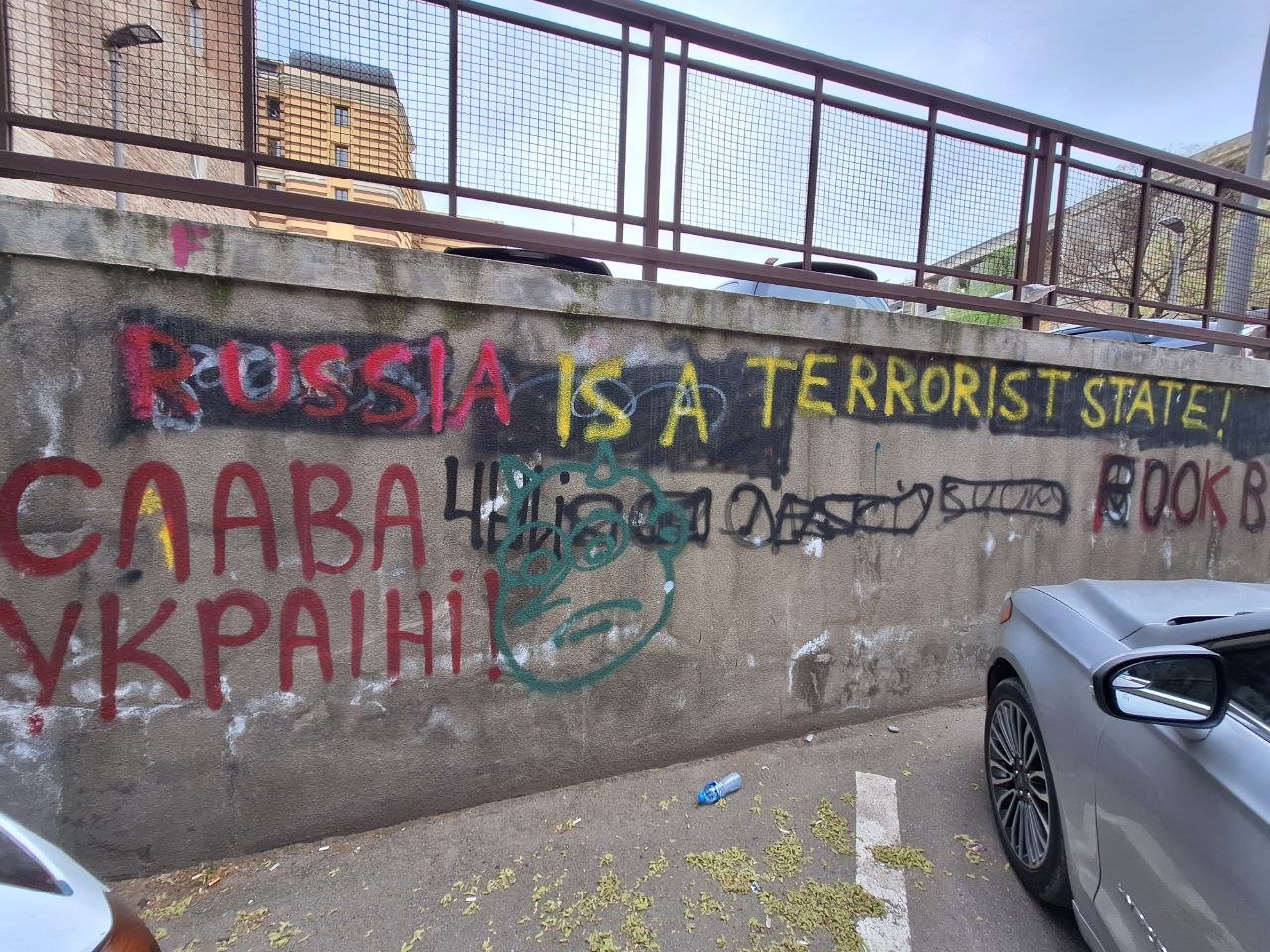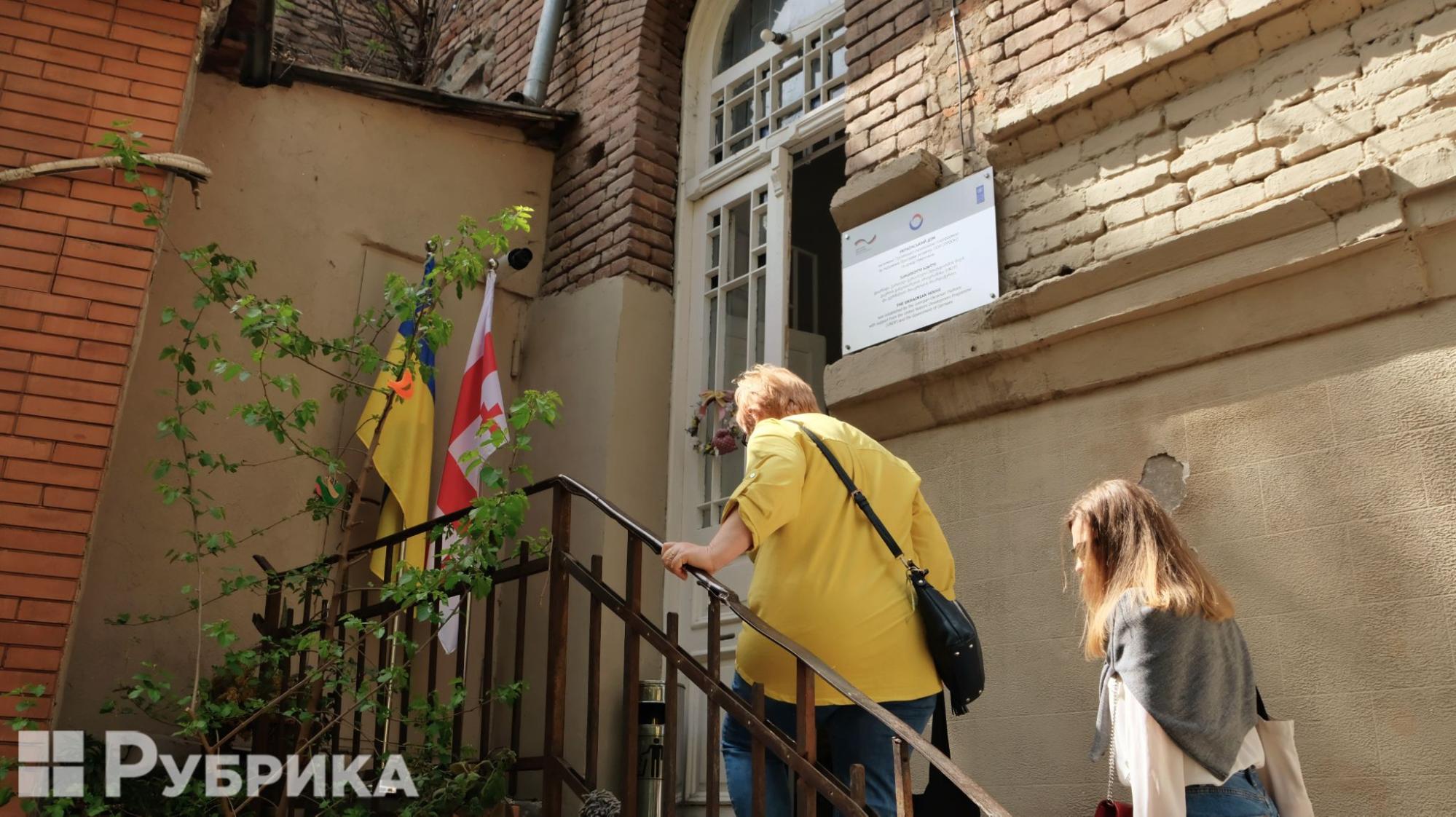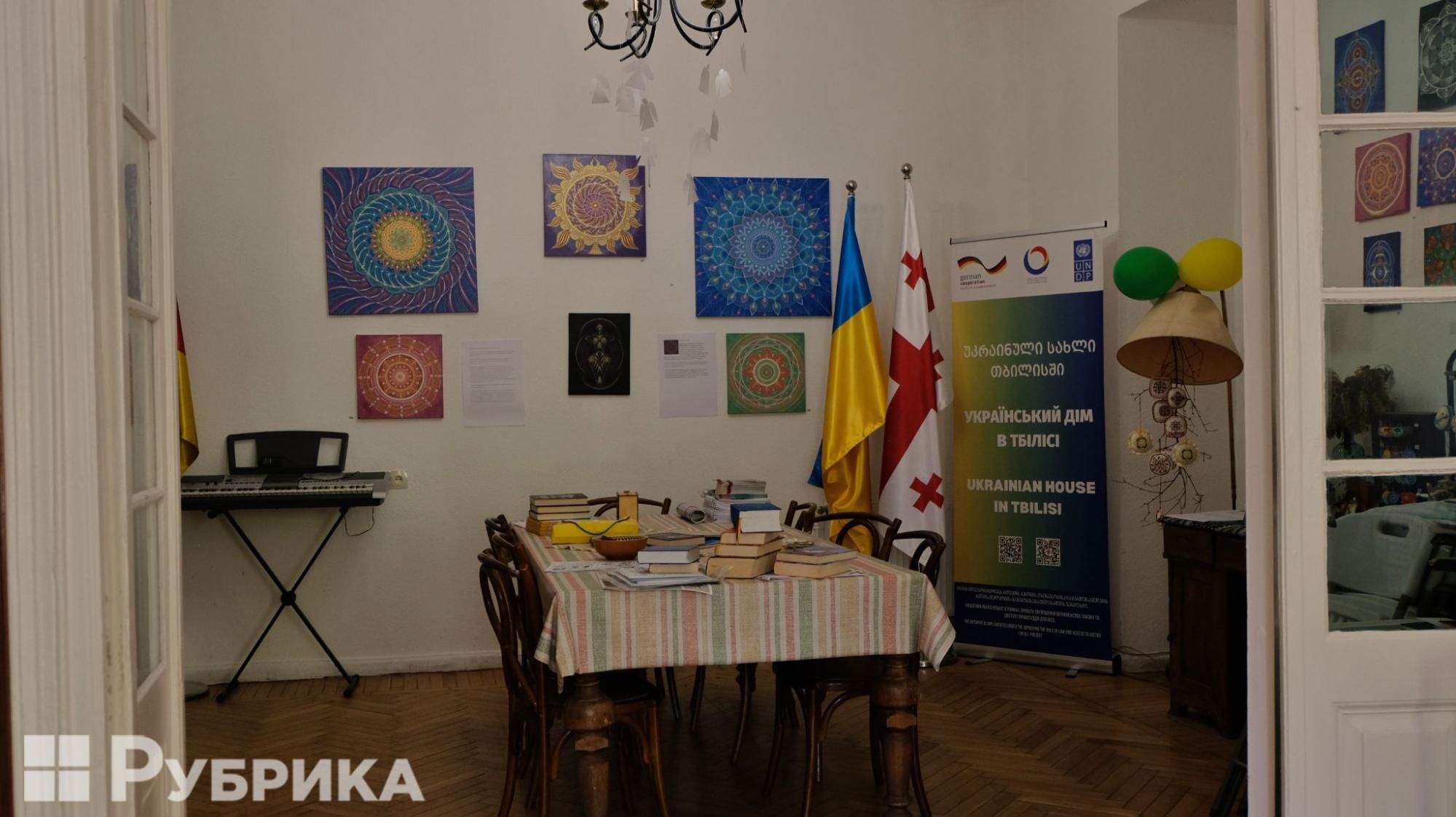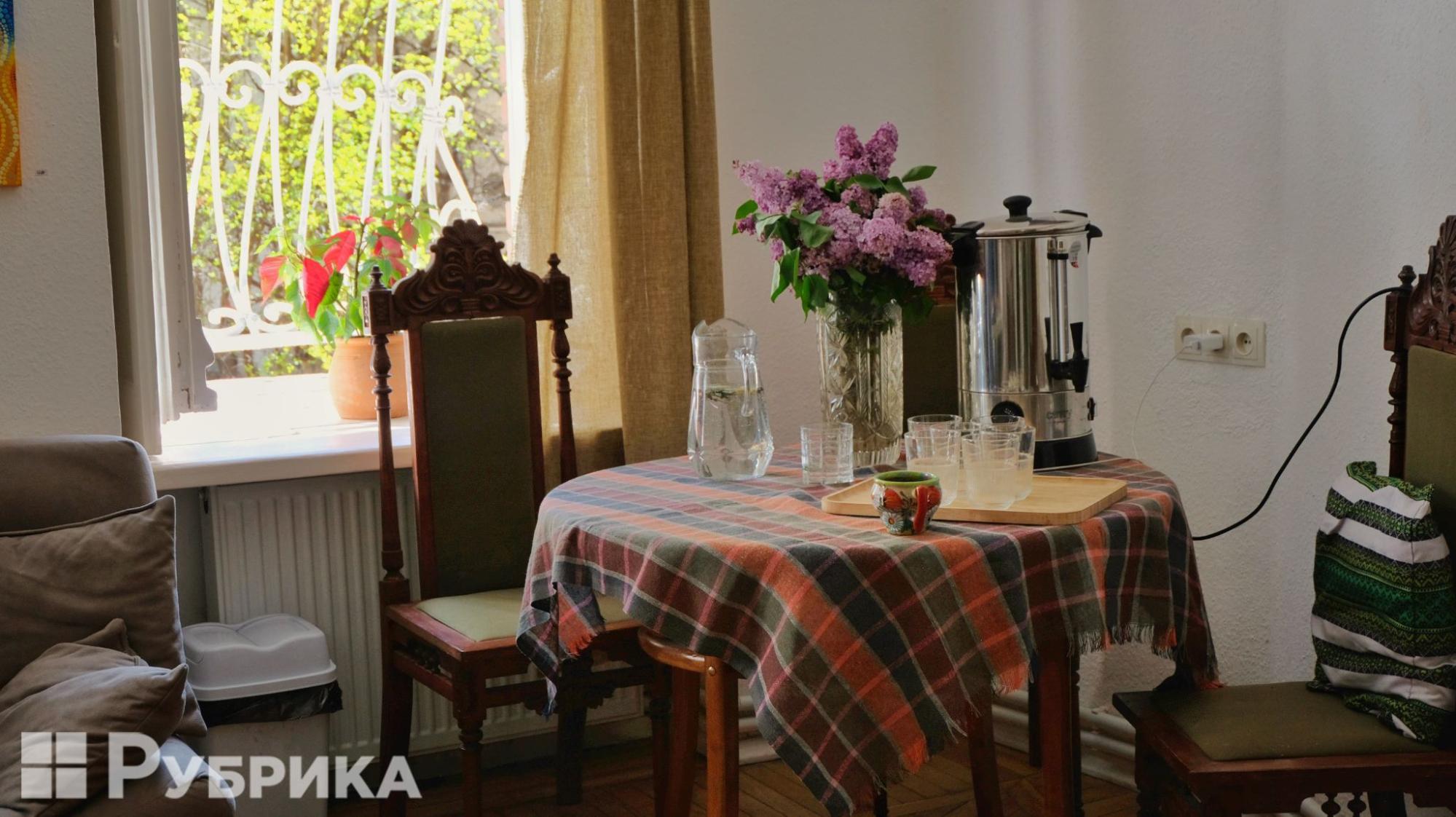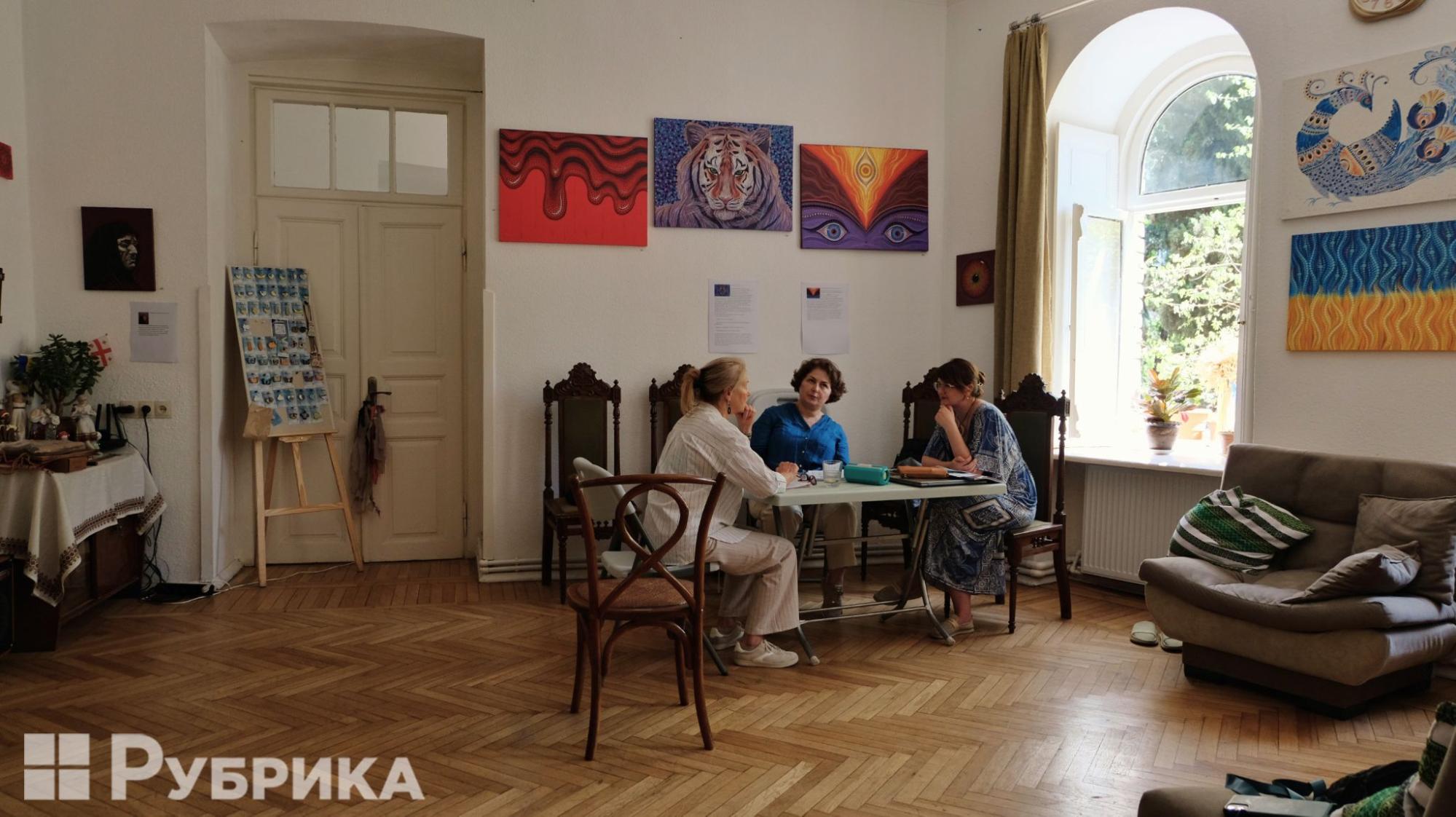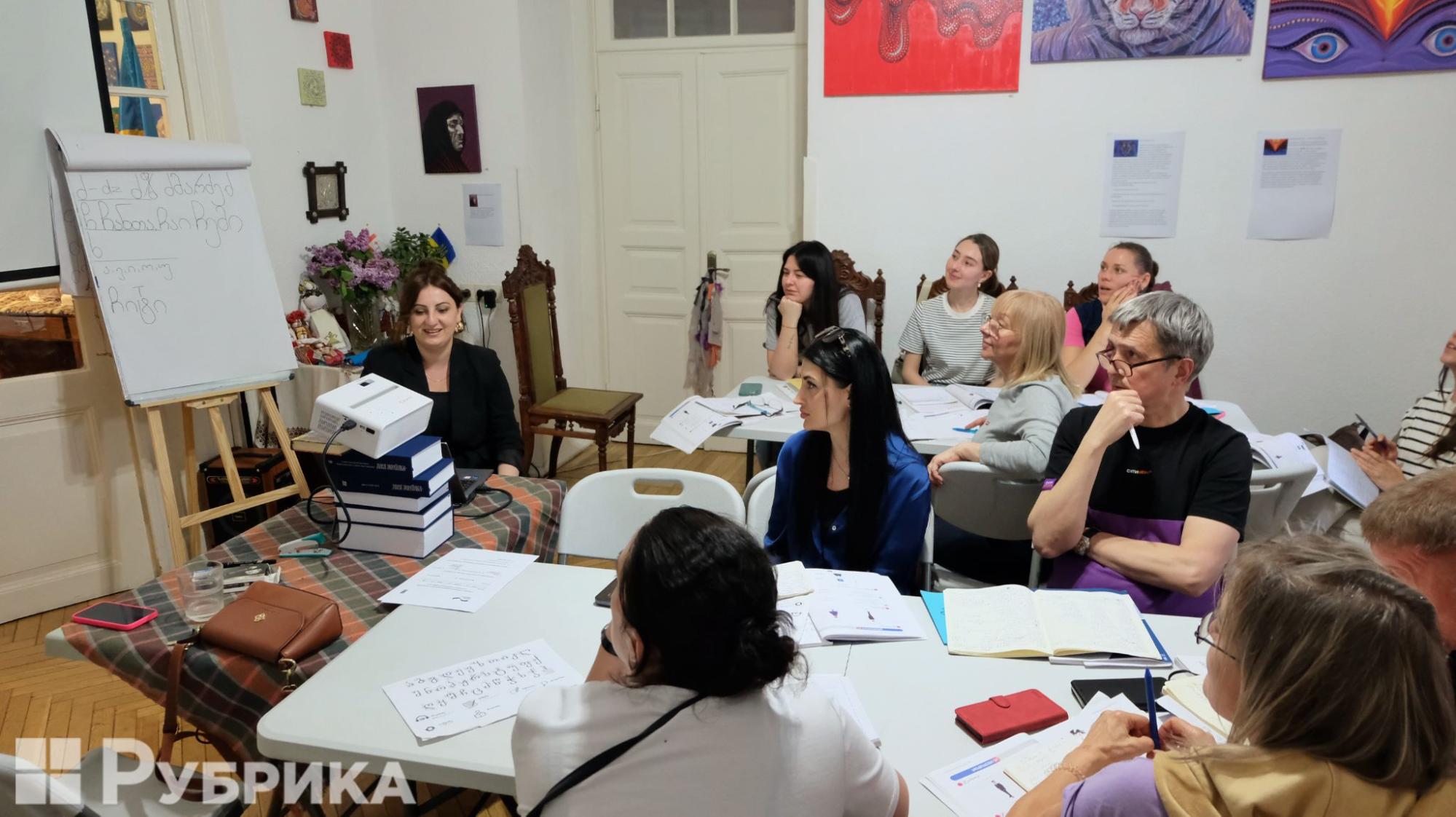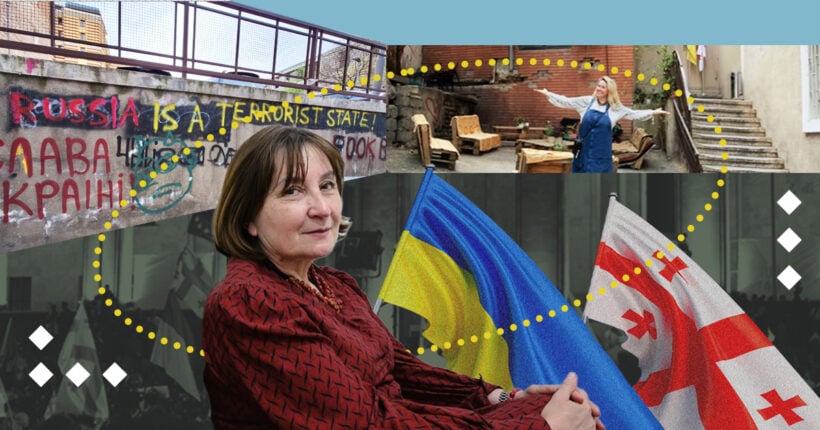
"Long live Sakartvelo!"
The center of Tbilisi is packed with people, so there's hardly any space to move. White banners with red crosses — the Georgian flags — wave above the crowds. In the masses of protesters, you can also see the blue and yellow colors of Ukraine. Here in Sakartvelo, people understand Ukrainian history better than most.
These demonstrations are often compared to the revolutions in Ukraine because they have similar causes, similar chants, and the same sense of unity among the people. However, the stories of Georgia and Ukraine have even more in common.
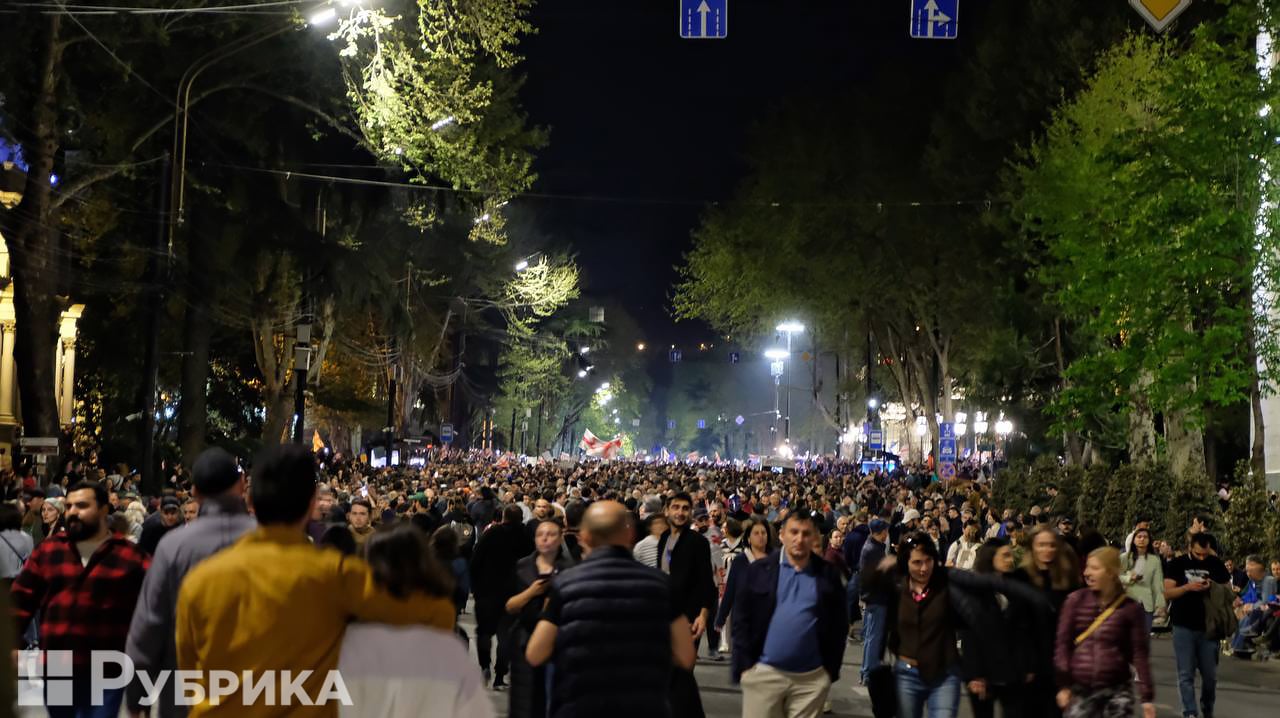
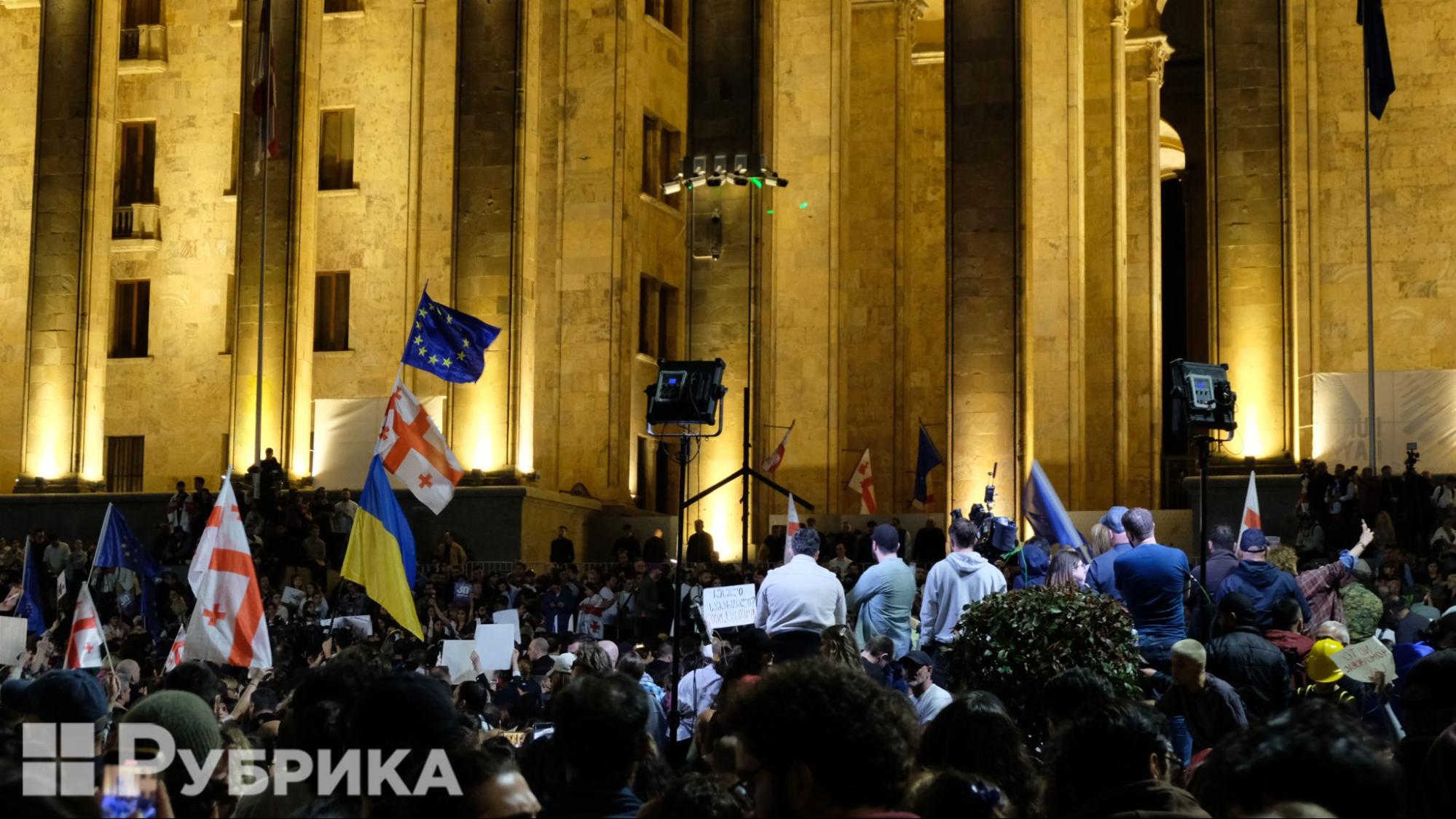
The people of Georgia, or "Kartveli" (which is the correct term for the country's ethnic group, not "gruziny" as the Russian Empire called them), have been defending themselves from attacks for years. Due to Russian aggression and its support for separatist regimes, parts of Georgia — South Ossetia and Abkhazia — are occupied as of 2024.
The creeping occupation of Georgia continues to this day — Russians slowly, meter by meter, push their border further into the country. A local person's garden that was under Georgia's control last night might be under the Russian flag by morning. To prevent these illegal actions by Russian forces, special Georgian teams monitor the line of occupation.
Tens of thousands gathered in the square to protest against a proposed "Russian law" and prevent the government from stopping Georgia's joining the European Union. The law would require media and non-profits to register as "under the foreign influence" if they receive more than 20% of their funding from abroad. A similar law was passed in Russia and used to crack down on independent media and organizations. The Council of Europe pointed out that the law goes against European democratic standards and threatens Georgia's chances of joining the EU.
"Glory to Ukraine! Glory to Sakartvelo! Down with Russia!"
"Long live Sakartvelo!"
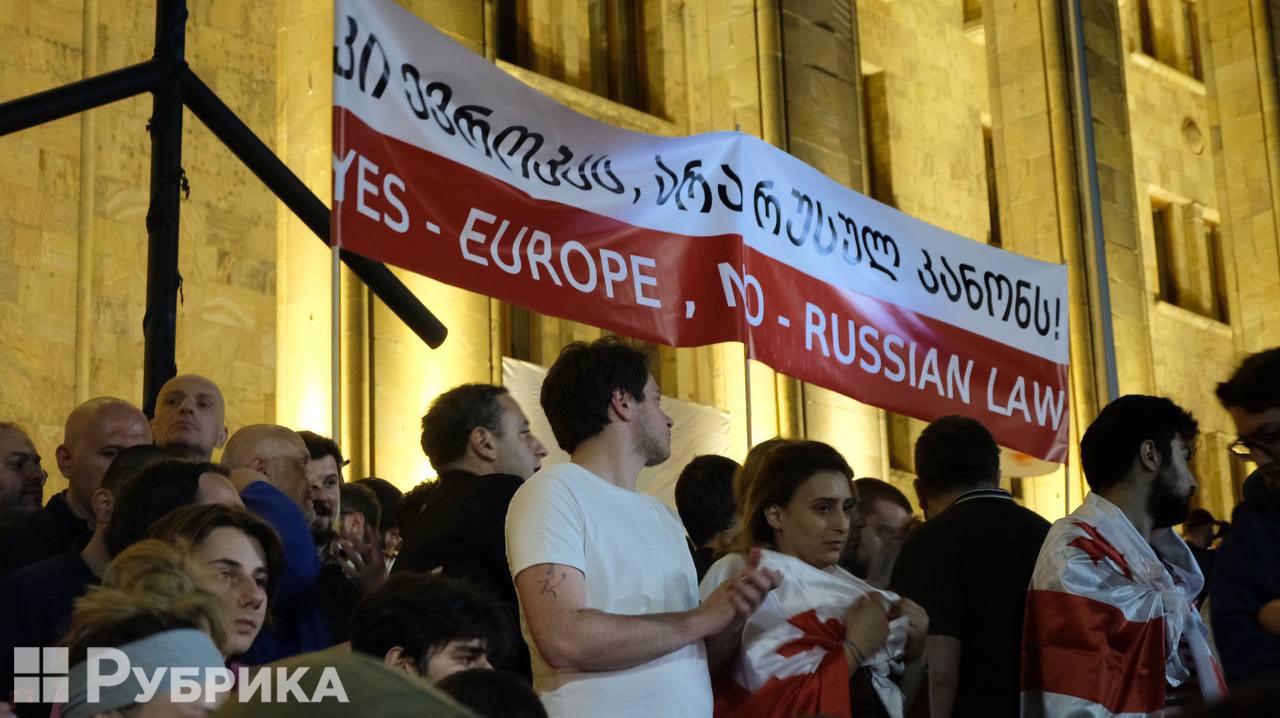
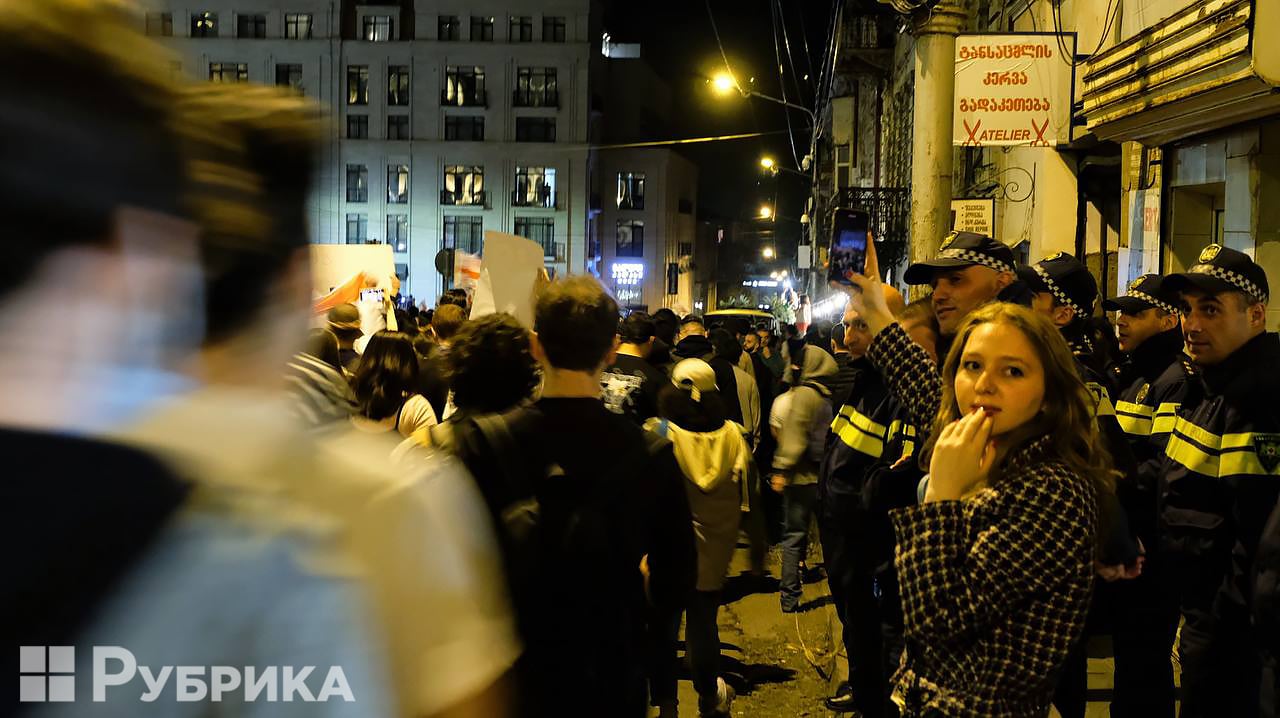
Thousands of people repeated these slogans. Ukrainians who found refuge in Tbilisi after Russia invaded Ukraine two years ago were among them.
"Don't worry, you're home now"
"Most people who came from Ukraine were from places like Mariupol, Kherson, and other occupied territories. Now they stay here. Georgia was the first country to welcome Ukrainians who had experienced tragedy," says Anna Oksanichenko, a Ukrainian woman who founded a Georgian-Ukrainian hub in Tbilisi.
Anna came to Georgia seeking safety for her children but hesitated for a long time. Friends told her not to go because Georgia was considered pro-Russian because of its government. "But when I arrived, the border guard told me, 'Don't worry, you're home now,'" she recalls. From that moment, the myth of Georgia's pro-Russian stance started to unravel for her.
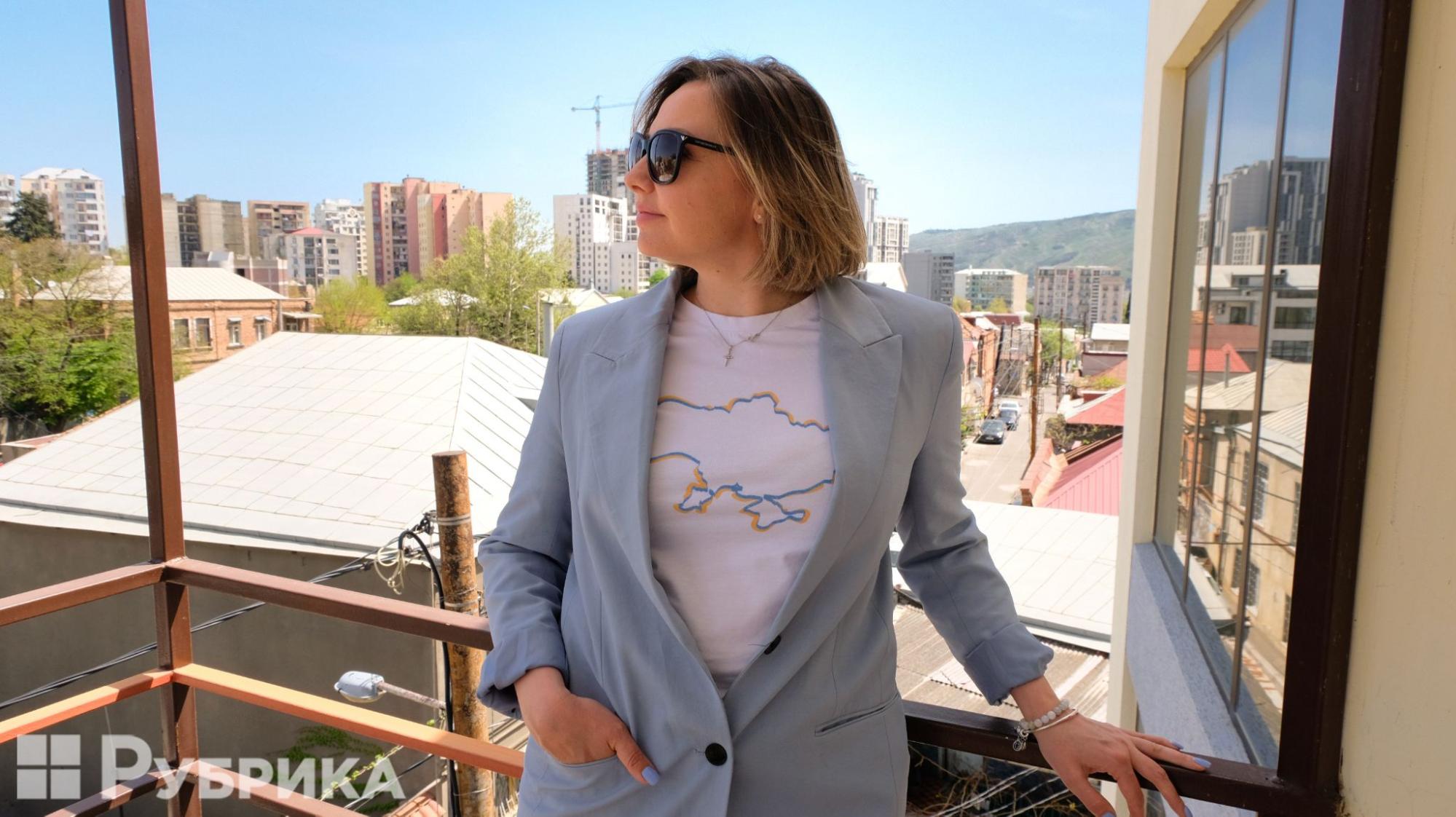
Anna Oksanichenko. Symbols of Ukraine are an essential part of Ukrainian identity abroad
Georgians welcomed Ukrainians with their trademark hospitality. They offered their apartments, raised financial support to cover living expenses and food for refugees, joined support protests, and sent humanitarian aid to Ukraine. Anna's favorite story is about volunteers who found a small bundle with ointment in the humanitarian assistance cargo for Ukraine. A grandmother from Svaneti — a mountainous region in the northwest of Georgia — had written on it that the ointment was great for healing wounds and had helped Georgian soldiers, so it would surely help the Ukrainians. "They gave away things they barely had themselves," says Anna.
After arriving in the capital, Anna decided to unite the community around a common idea. She wanted to organize a forum to bring together business people, local communities, government, and the Ukrainian diaspora — everyone who focused their attention on supporting Ukraine and its independence. This is where the idea of the Georgian-Ukrainian hub came from: to create an organization with a website that provides all the relevant information for Ukrainians.
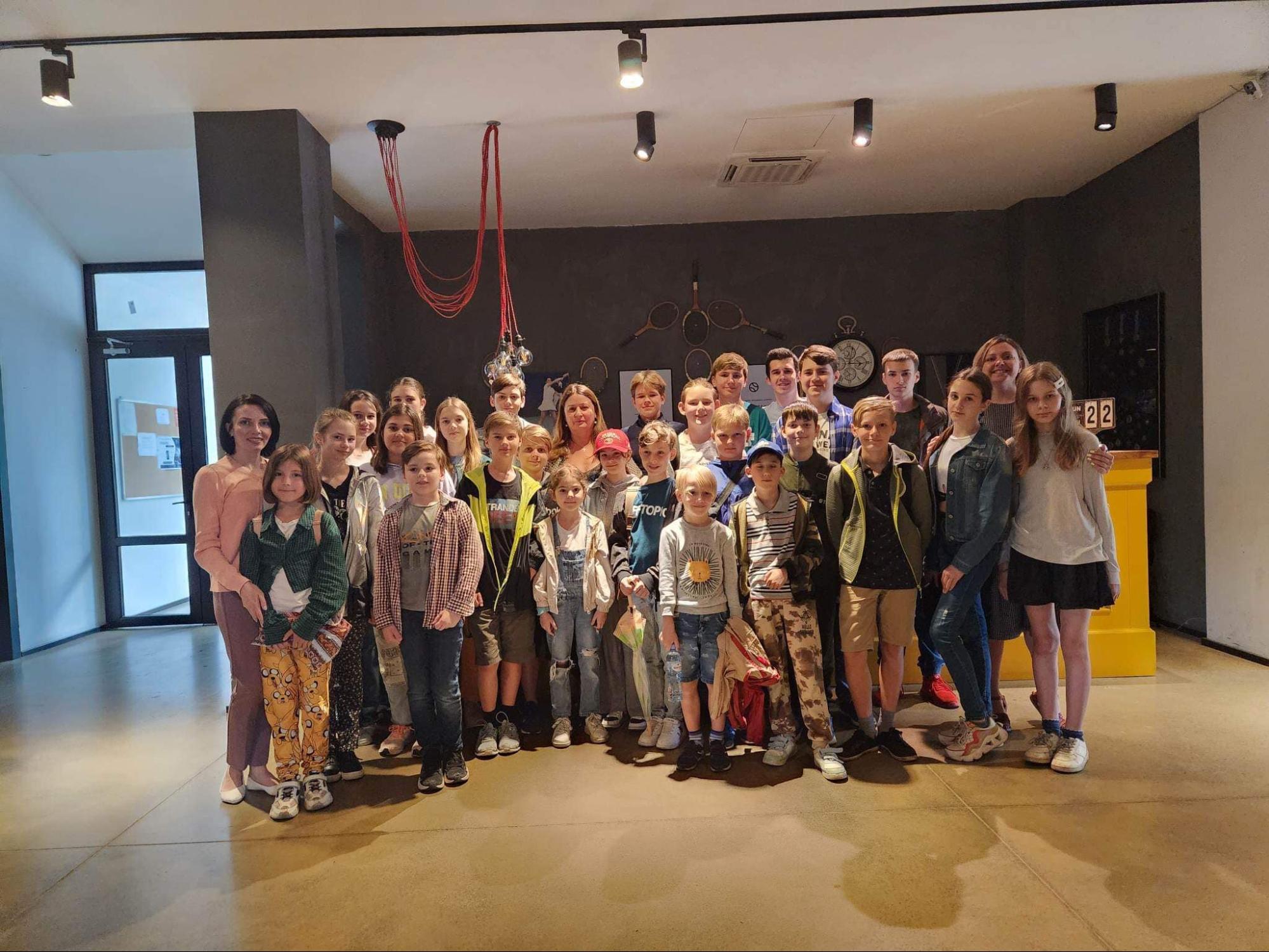
The "Leadership Academy" participants at a meeting with tennis player Leila Meskhi. Photo: Ukrainian-Georgian Hub FB
Later, the hub team launched the "Leadership Academy" project for Ukrainian teenagers who came to Georgia after 2022, most of whom were from occupied territories. For ten months, over 30 participants met successful people in business, sports, and parliament and went on tours.
"We told our stories and explained that Ukrainians here aren't beggars but are trying to start their lives anew and help Georgia. These kids learned that success has no boundaries; you can become successful in any situation," says Anna.
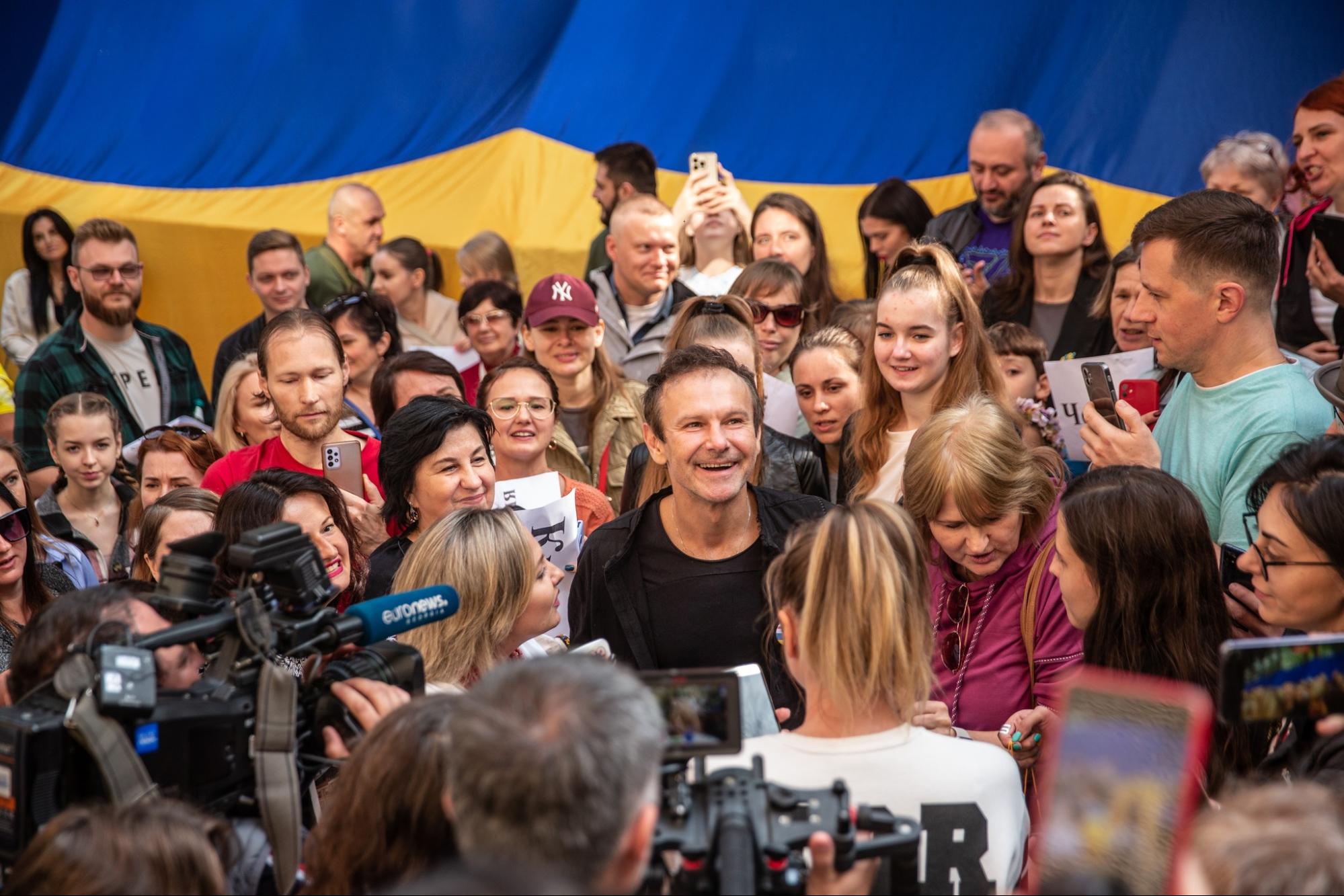
In 2023, participants were visited by famous Ukrainian musician and Okean Elzy band leader Sviatoslav Vakarchuk. Photo: Ukrainian-Georgian Hub FB
The project also aimed to introduce teenagers to the history of Georgia and Ukraine and foster national awareness. They visited the region of Svaneti and Bakuriani, a small town where groups of Ukrainians were relocated in the 19th century. "We had a rule — speak only in Ukrainian during the project. This way, some kids even taught their [Russian-speaking] parents to speak Ukrainian. We sang Ukrainian and Georgian folk songs, and the kids made friends with each other and with Georgian youth," Anna, the project's organizer, recalls.
Anna Oksanichenko calls it "people's diplomacy." She believes that after the project, the Ukrainian kids will spread these values both in Ukraine and Georgia, telling everyone what's really happening in both countries. This approach will help unite people and make them resistant to Russian propaganda.
One of the lecturers at the academy was a man from Abkhazia. He told the participants his story: "I went through those nine days (the time it took for refugees from Abkhazia to cross the mountains and reach peaceful cities in Georgia, ed.), which I'll never forget, but I didn't turn that into self-pity. I remember it all, but I use it as strength to keep going."
"I think Georgians support us because they have a similar experience with occupation. In Tbilisi, there are many people from Abkhazia who, even after nearly 30 years, still call themselves refugees. They understand us and say, 'We're also refugees and can't go home.' They haven't lost hope that their home will be liberated and they can return," says Anna.
The hub leader adds that she has friends, some of whom also walked for nine days from their homes in Abkhazia to peaceful cities, crossing mountains: "They saw death, horrible things. They told stories about crossing mountains as little kids and people freezing to death or starving. And they remember the good things that the Ukrainians did: back then, Ukrainians used airplanes to transport people. They say, 'We'll never forget that. Only Ukrainians extended a hand to help Abkhazia, and now we'll help you.'"
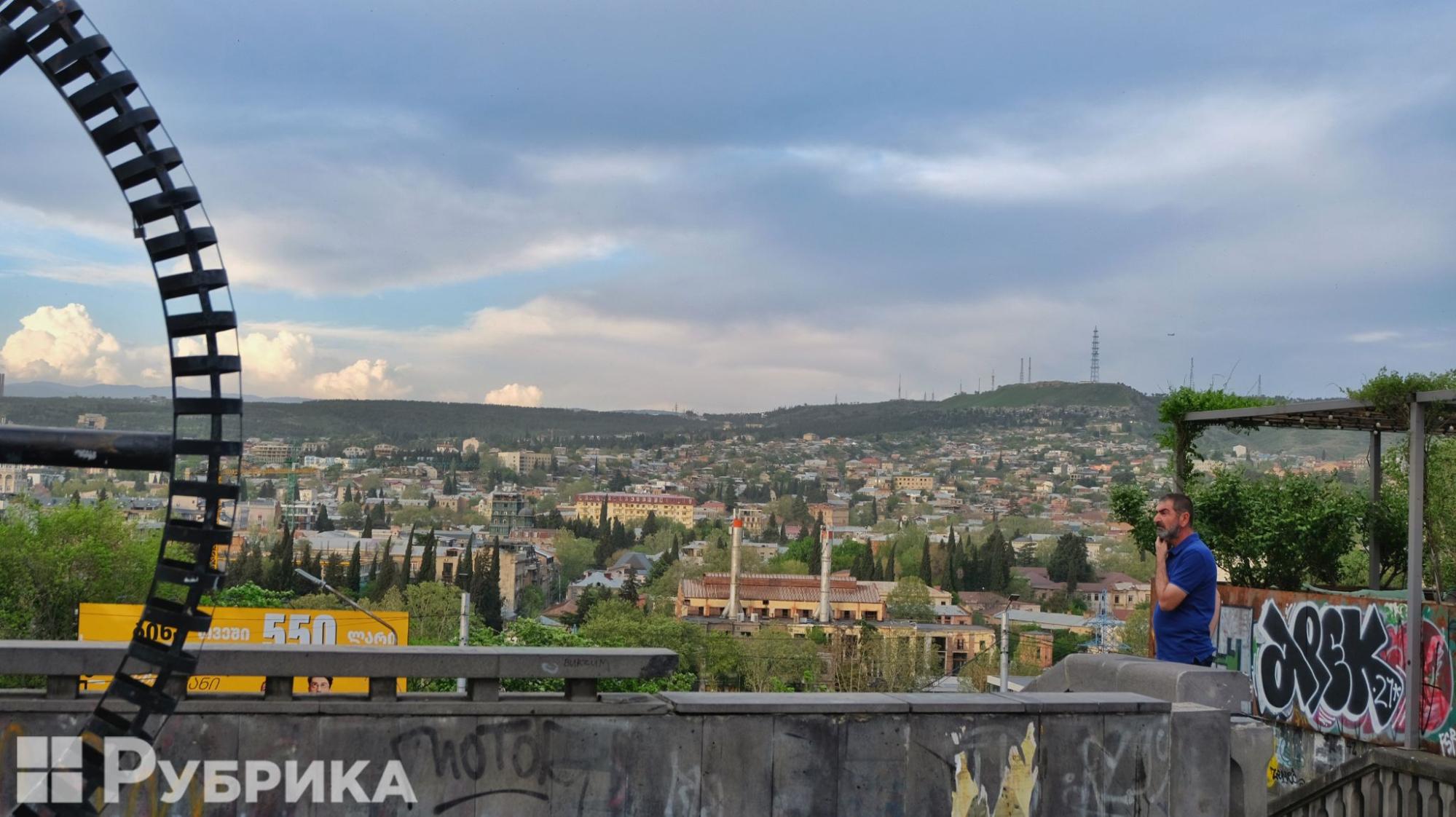
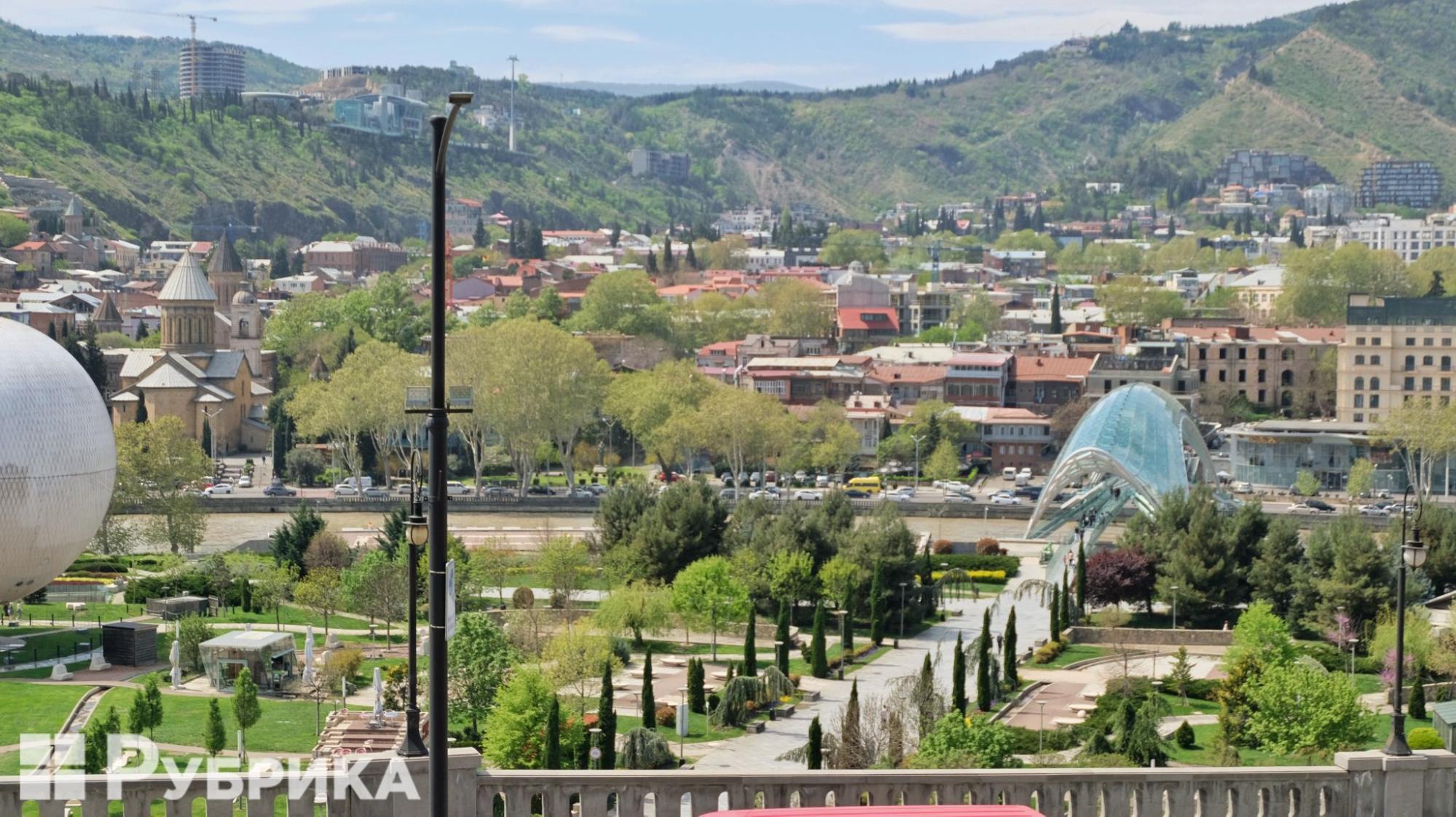
The Georgian capital, Tbilisi
One thing Anna especially appreciates about Georgians is their love for their roots. She gives the example of Svaneti, where people still live high in the mountains. The worst punishment for them is being expelled from their home and land. Anna says that after visiting this historical region, her attitude toward her own heritage changed:
"As Ukrainians, we've been uprooted and moved around the world like tiny weeds. My own family was relocated from Ukraine's west to east. To maintain our strength, we must not forget our roots."
Streets full of blue and yellow
Ukrainians in Tbilisi joke that there seem to be more blue and yellow flags in the Georgian capital than in any city in Ukraine. As you walk through the streets, you can't help but notice them everywhere: on fences, on doors, in restaurants and cafes, on building facades, and on flagpoles.
Following the trail of flags, you find yourself on a street where, behind the buildings and trees, an unremarkable door leads to what visitors call the heart of Ukrainian culture. This is the entrance to the Ukrainian House in Tbilisi.
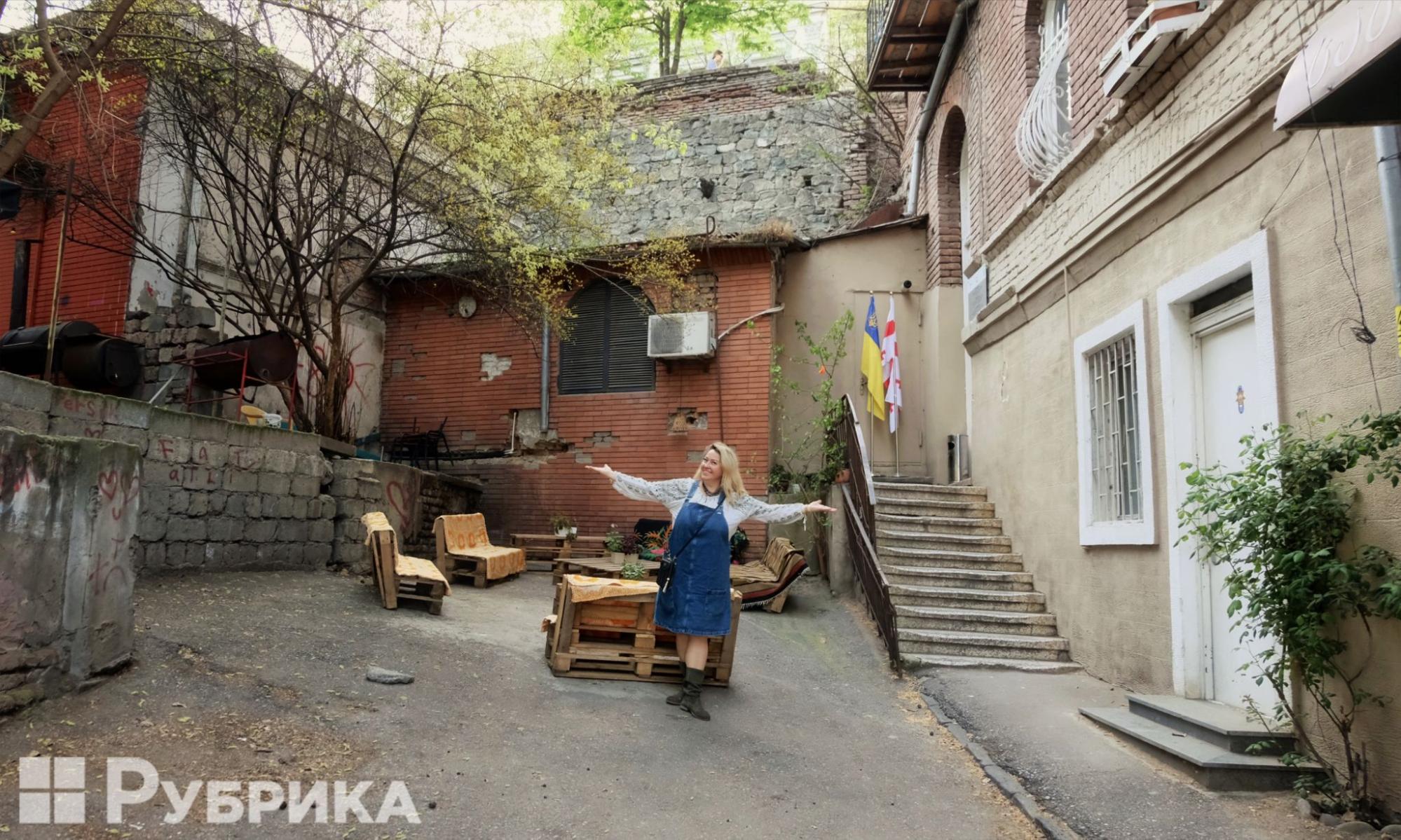
At the Ukrainian House in Tbilisi
Historical parallels
"In 1983, I married a Georgian man, and that's how my story began," says Valentyna Marjanishvili, a Ukrainian originally from the Dnipropetrovsk region. Now, she heads the non-profit organization "Georgian-Ukrainian Platform" and oversees the Ukrainian House in Tbilisi.
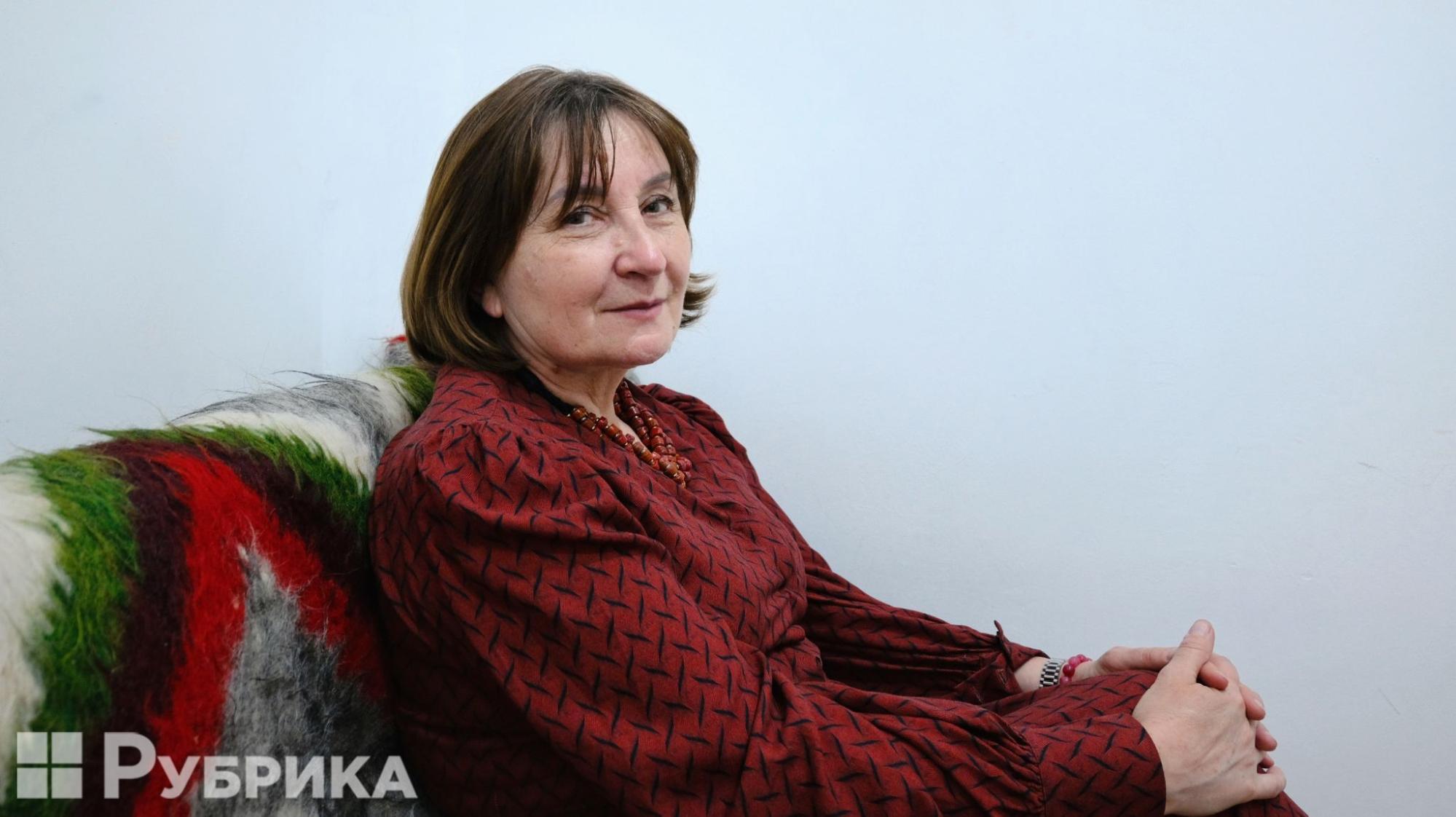
Valentyna Marjanishvili
She came to Georgia without knowing a word of the local language, but back then, it didn't matter much — everything was translated into Russian. The Russian influence was so strong that parents preferred to send their kids to Russian schools, which were considered more prestigious than Georgian ones.
"Today, people push their kids to learn English, but back then, it was Russian. They aimed for Moscow, St. Petersburg (formerly Leningrad), and other Russian cities. [Ukrainian cities of] Odesa and Kyiv were also considered because of their better climate. But the roads beyond Moscow were closed," she recalls.
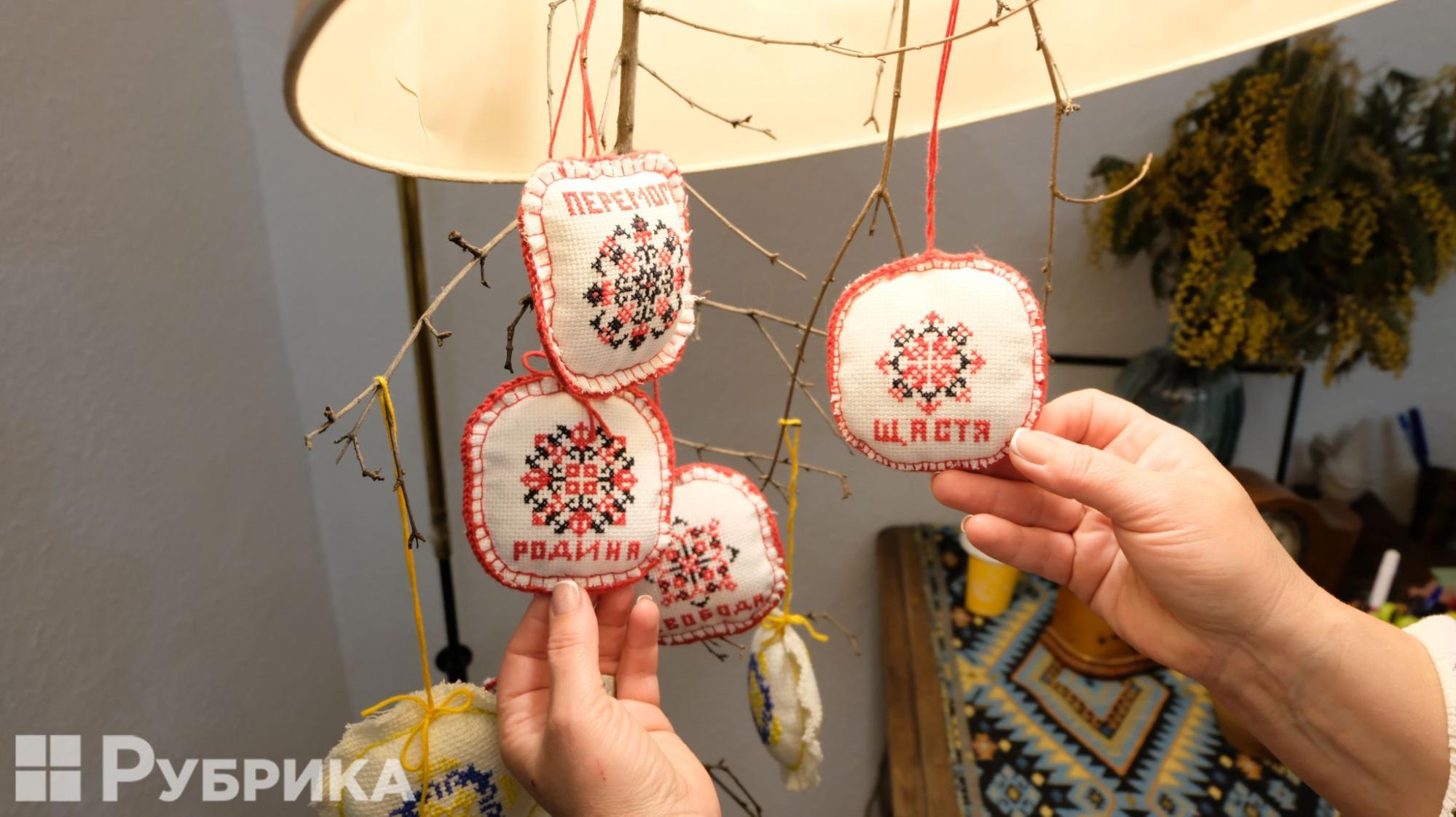
At the Ukrainian House in Tbilisi
Georgians repeatedly stood up for independence from Russia despite all the Russian influence. One of the most tragic events was on April 9, 1989, when military units violently dispersed a peaceful anti-Soviet protest in Tbilisi. Georgian communists, with the backing of the USSR central government, sent soldiers to confront unarmed protesters. Around 20 people were killed that day. The tragedy sped up Georgia's exit from the Soviet Union,
"The USSR had the political ideology to erase identities, to make everyone forget who they were and become one big nation," Valentyna explains. This doctrine led many Ukrainians in Georgia to think of themselves as Russians. She adds that the situation began to change in the early post-Soviet years when people started to come together based on their national identity.
By September 1999, Georgia opened its first Ukrainian school named after prominent Ukrainian historian and political leader Mykhailo Hrushevskyi. Valentyna led the organizing committee to create the school and worked there for 13 years. She says: "At school, besides teaching children, we also tried to raise awareness about our heritage. It was tough — we were cut off from Ukraine: no libraries, no internet. The first computers were installed in the school in 2000. There was a huge lack of information, but we tried to preserve our identity."
Active diaspora strengthens the country
"Georgia will collapse the next day if anything happens to Ukraine. The Russians are just 40-60 km from Mtskheta (a town near Tbilisi). We're extremely interdependent. When there's a common enemy, you have to unite," says Valentyna.
She remembers February 24, 2022, when Russia unleashed its large-scale invasion of Ukraine. While the world was still in shock, Georgia was already holding a large rally in support of the country and reaching out to the diaspora to find out where and how much humanitarian aid should be sent. The same year, the Georgian Ministry of Education prepared documents and aligned the curricula so that some schools could open Ukrainian sectors and start teaching with Ukrainian textbooks.
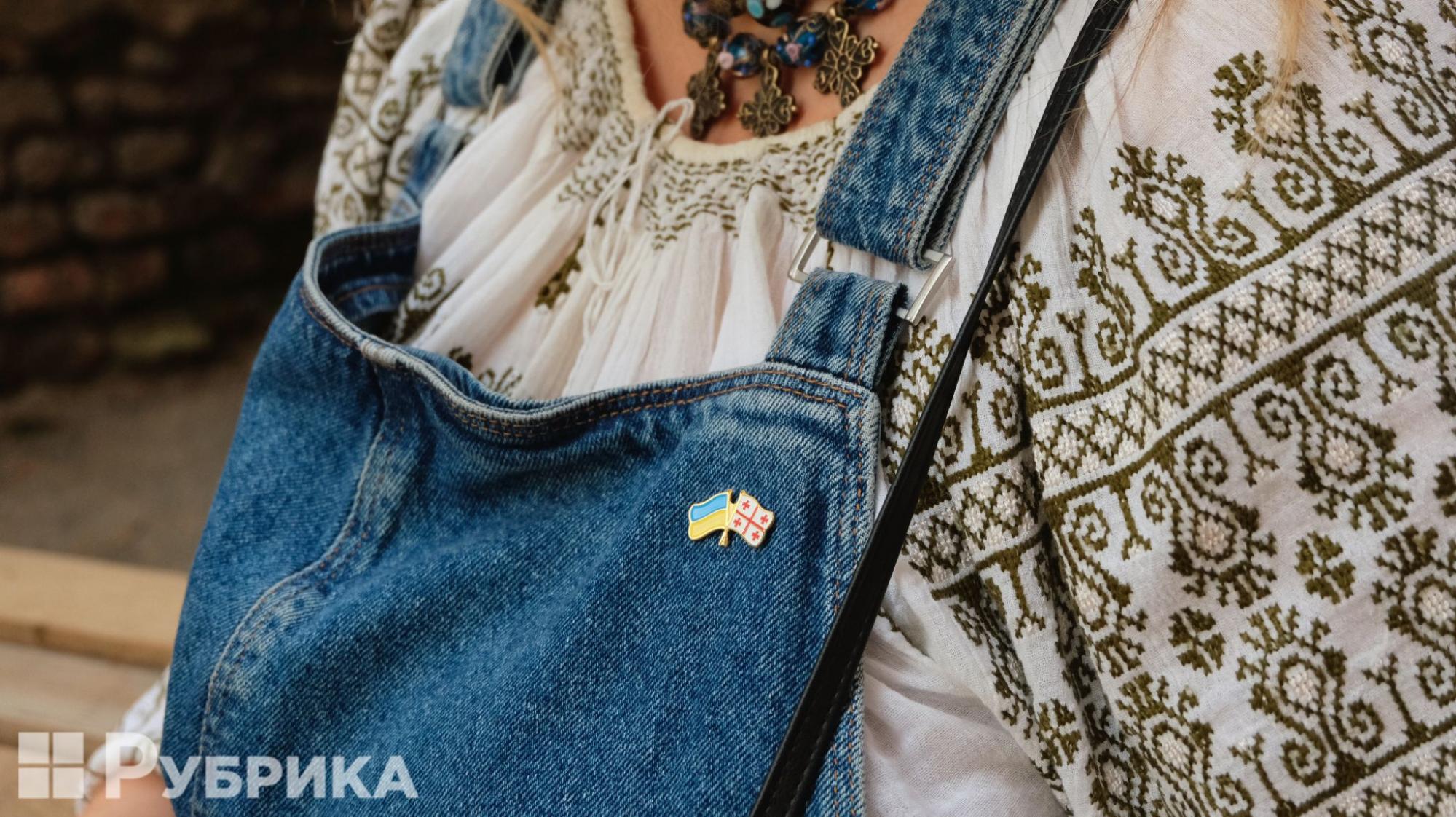
With the influx of Ukrainian refugees, the idea of creating the Ukrainian House came to life. Initially, it was meant to be an information hub like those in the cities of Warsaw and Riga, where people could get basic assistance and information. By September 2023, with the help of supportive Georgians, Ukrainian activists turned this idea into reality. With time, an information hub grew into something much bigger — a place where all things Ukrainian could find a home. Now, it hosts formal and informal gatherings, cultural events, language classes, and more.
"I don't want to say we're making a huge change or having a massive impact. I wish it were bigger and more powerful, but we do what we can with the resources we have," Valentyna says. "First, we're guiding Ukrainians back to their roots. At the meetings, people say things like, 'Why didn't we know this when living in [the Ukrainian cities of] Mykolaiv or Kherson?' They paint Easter eggs and weep. Second, we connect people to the Ukrainian language, culture, and traditions. This space helps people heal because mutual support is essential."
The events at the Ukrainian House are varied and help with adaptation: art therapy, meetings with psychologists, lectures on the medical system in Georgia, evening gatherings for board games, and more. They also provide legal information and help with documents, housing, and jobs.
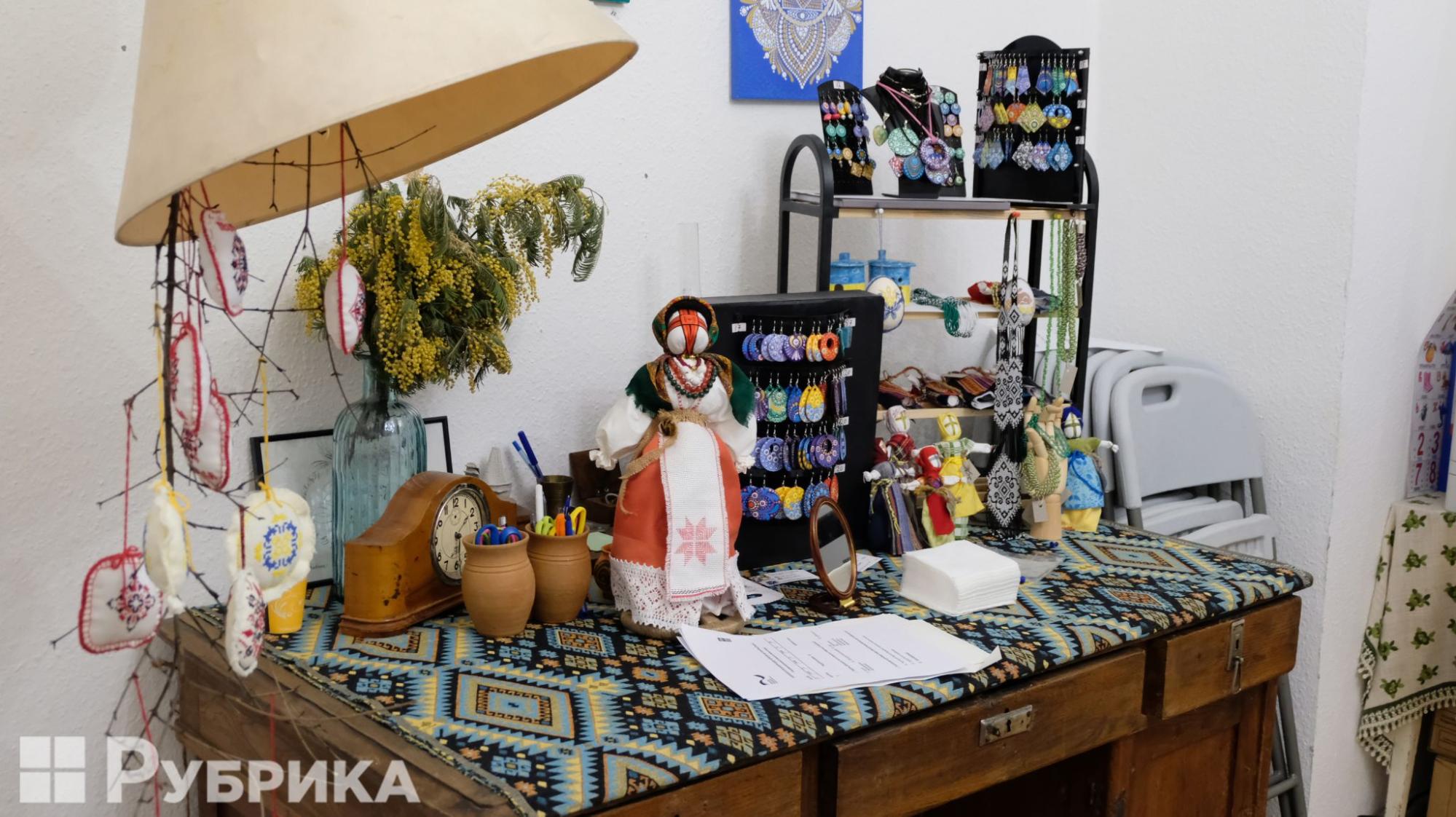
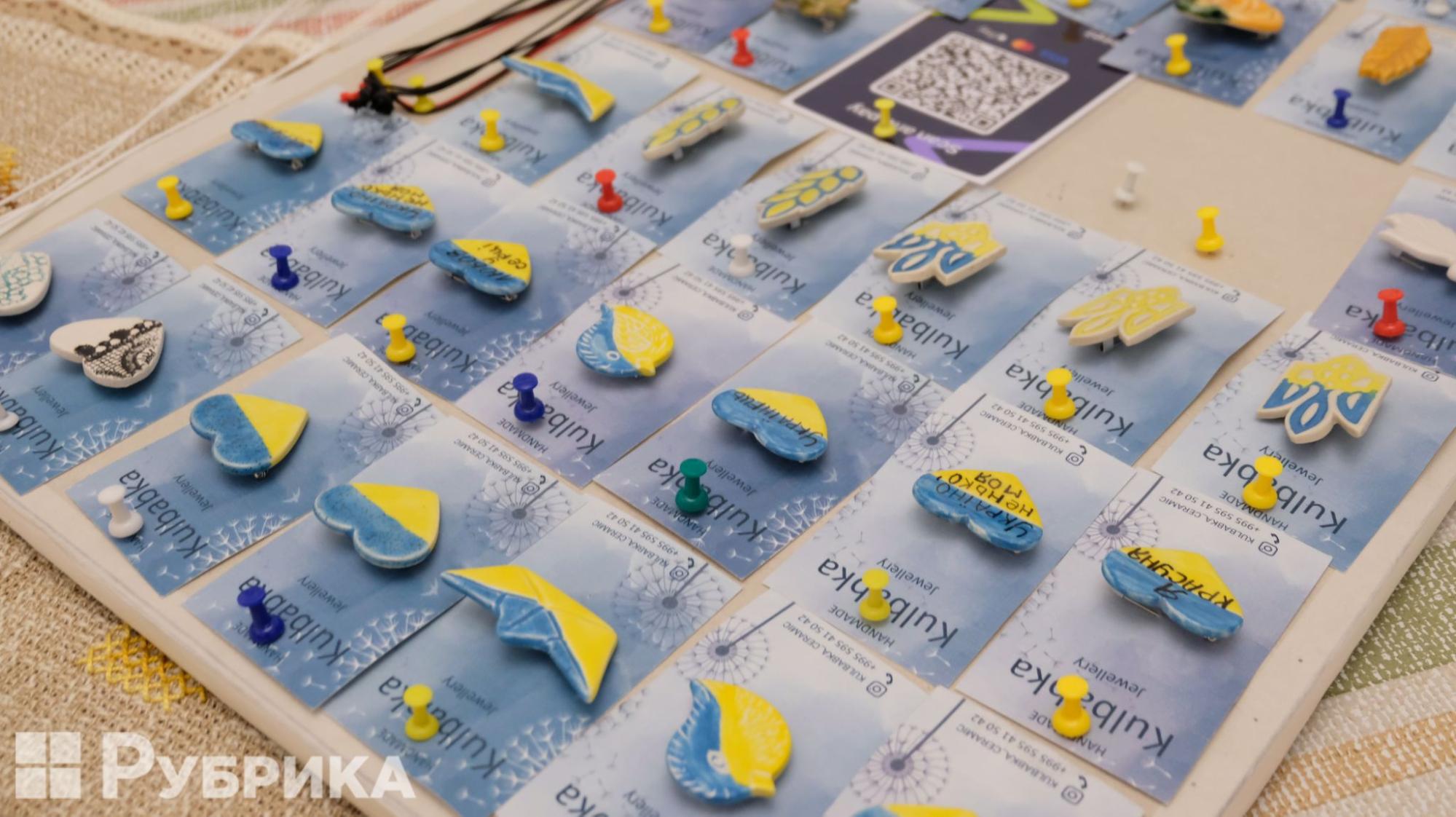
Shelf with Ukrainian crafts
People from all over the world visit the Ukrainian House. Recently, the International Women's Association Georgia — the wives of diplomats and representatives from countries like Indonesia, Malaysia, Spain, and Sweden — held a workshop on traditional Ukrainian Easter egg painting.
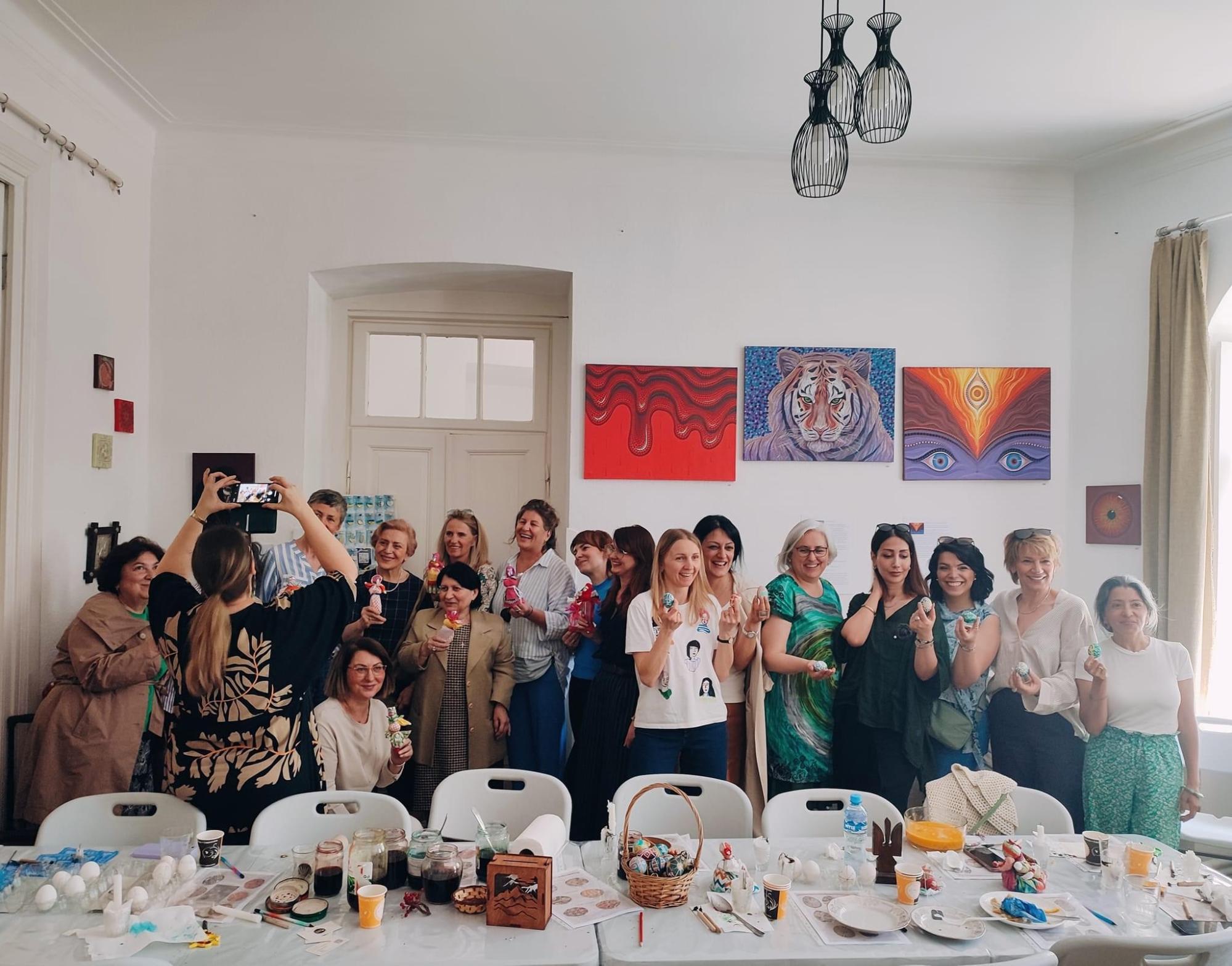
International Women's Association Georgia at the Easter egg painting workshop. Photo: NGO "Georgian-Ukrainian Platform"
Maya Fysiuk, the project manager at the Ukrainian House, remembers that her first task when she joined the team was to organize the celebration of Ukrainian Flag Day. The employees decided to create a 32-meter-long flag and carried it through the square as a Ukrainian-Georgian group. Maya adds:
"The Ukrainian House is also an integration project for Georgians. Here, anyone interested in Ukrainian culture can learn about it and feel at home. During Christmas, we held an event about traditions and discussed Epiphany Day and the customs of the Ukrainian New Year, Malanka. We draw cultural parallels between Georgia and Ukraine."
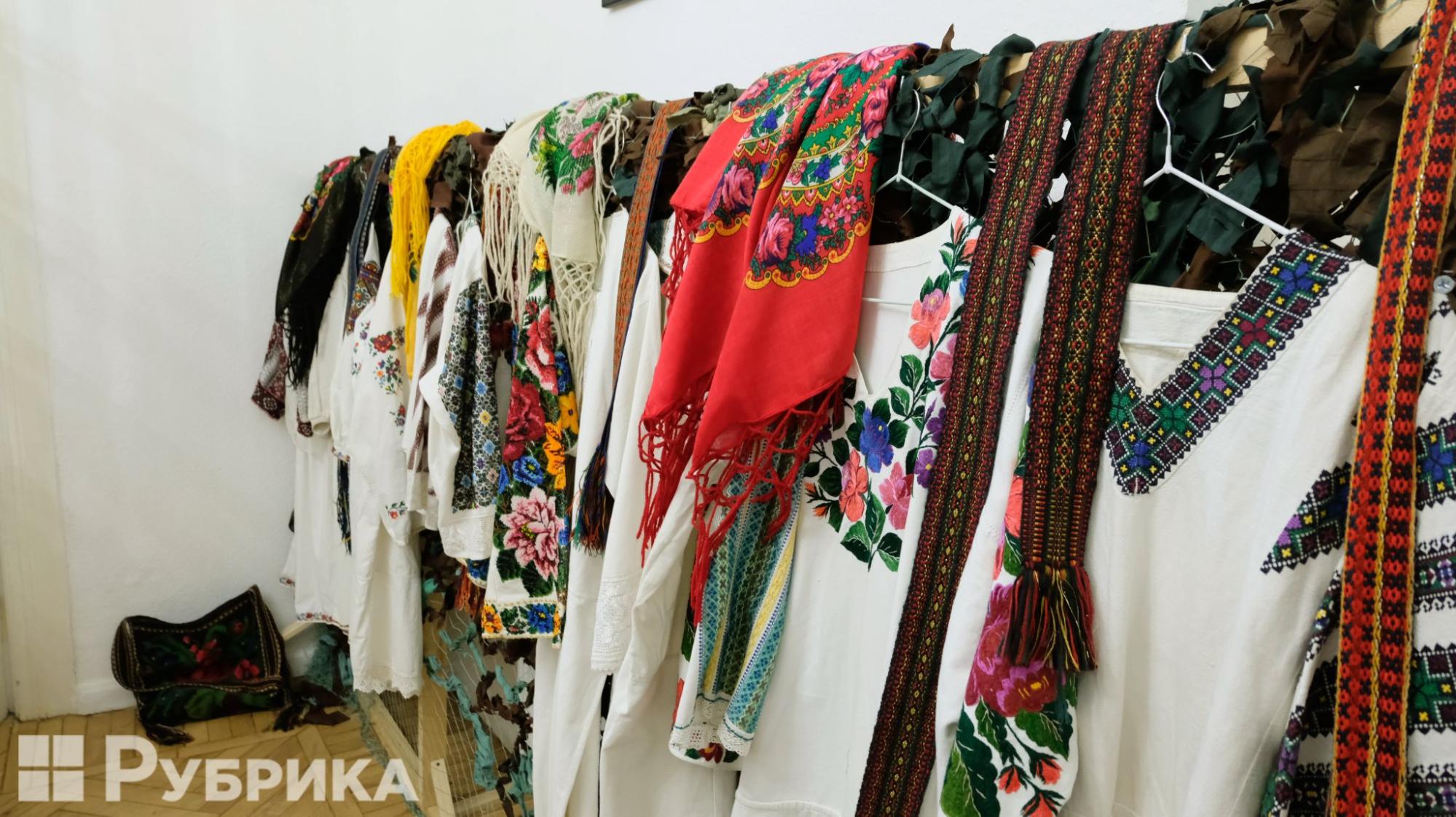
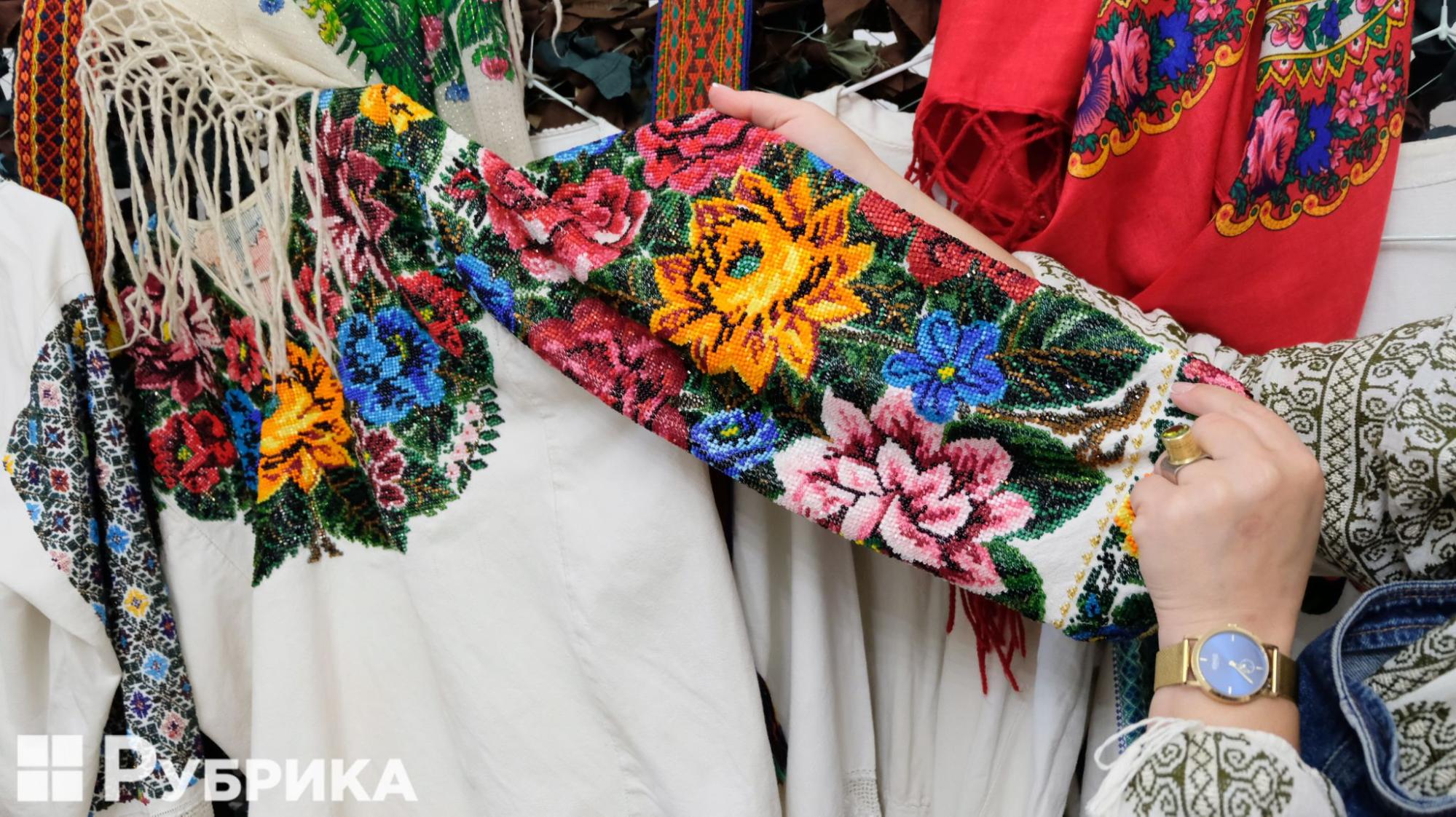
Collection of traditional Ukrainian clothing at the Ukrainian House
Valentyna notes that, unfortunately, the longer the war goes on, the more Russian propaganda affects people. In the Ukrainian media space, there are reports of Georgia betraying Ukraine and cooperating with Russians, while in Georgia, there's messaging like, "Stop fighting. Can't you see the monster you're facing? Are lives worth less than territory?"
The Ukrainian House leader adds, "Dripping water wears away a stone. We must all keep doing our jobs and influencing people so that they want to help Ukraine."
"We're popularizing Ukrainian cuisine among Georgians"
"We came to Georgia long before February 24. I always had a strong feeling about it. I lived in Kyiv, and every time I stepped outside, I looked to see if anything was flying through the air," Natalia Tsutskiridze, an entrepreneur, recalls her life in January 2022. Before the invasion, she, her Georgian husband, and his family ran two businesses — a small bakery and a restaurant serving Georgian cuisine.
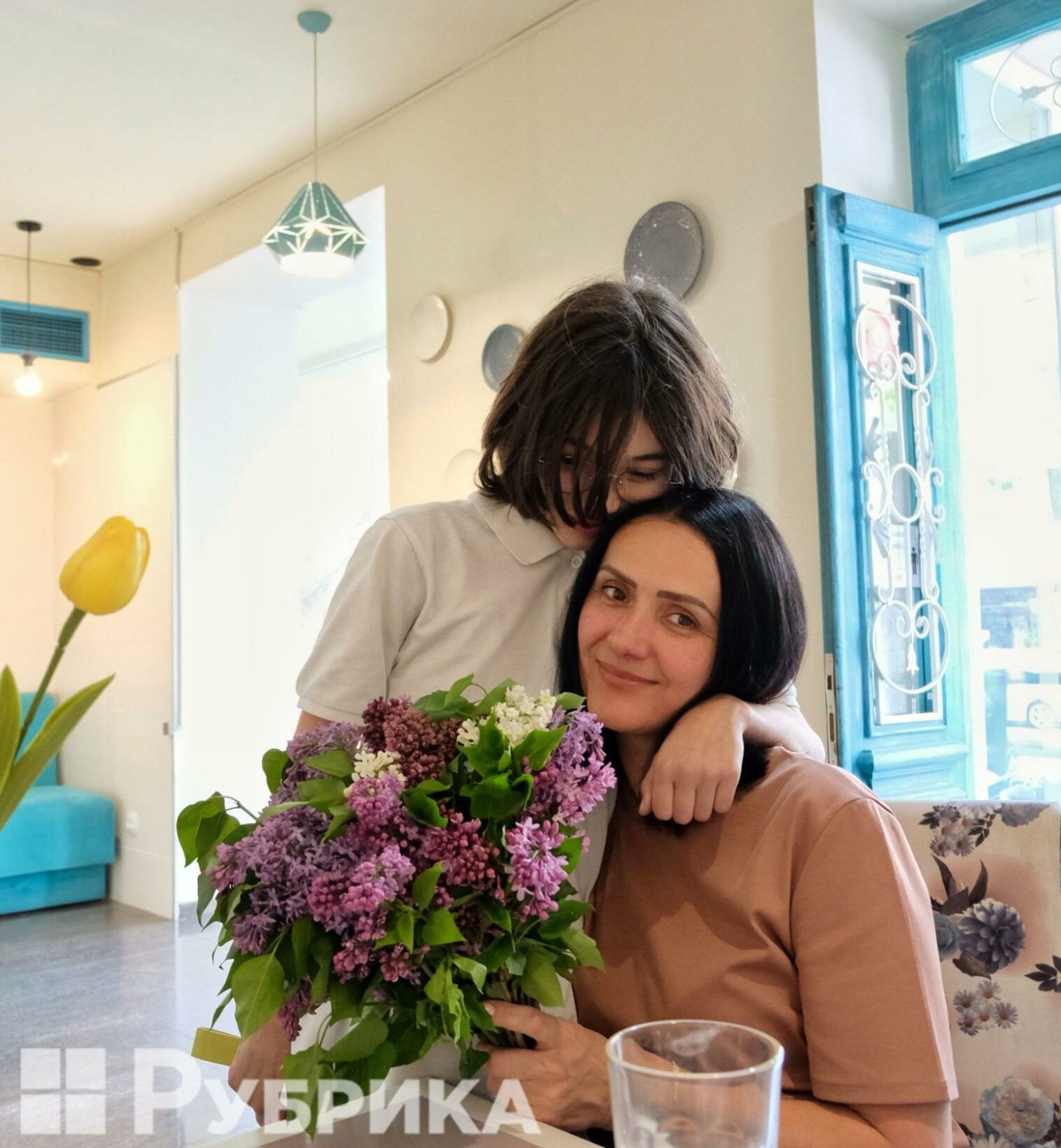
Natalia and her daughter
The family didn't even question where to go: they took their two children and headed to Tbilisi, her husband's hometown. Natalia says it was most challenging for the kids. Even though they knew the Georgian language, which could help them integrate, it was hard for them to accept how their lives had changed entirely. "My daughter was a professional gymnast and medal-winning champion. When I tried to take her to classes somewhere here, she'd say, 'No, Mom, I want to train with my teacher, so I'll only go back to gymnastics in Kyiv,'" she says.
When the news about the siege of the Ukrainian capital broke, Natalia's husband went to Kyiv to bring some of the team members back to Georgia. They put their businesses on pause for a while. Now, her husband's brothers, who decided not to leave Ukraine, help run the companies.
In Tbilisi, the family opened a new Ukrainian restaurant called Pan Varenyk. Natalia says they initially did all the work themselves: "I was the waiter, the cook, and I did the shopping. It was tough, but I wasn't afraid. When the invasion started, all fear vanished because the worst had already happened." She didn't plan to stay in Tbilisi for long; she thought the war would end in a month or two, and they'd return home.
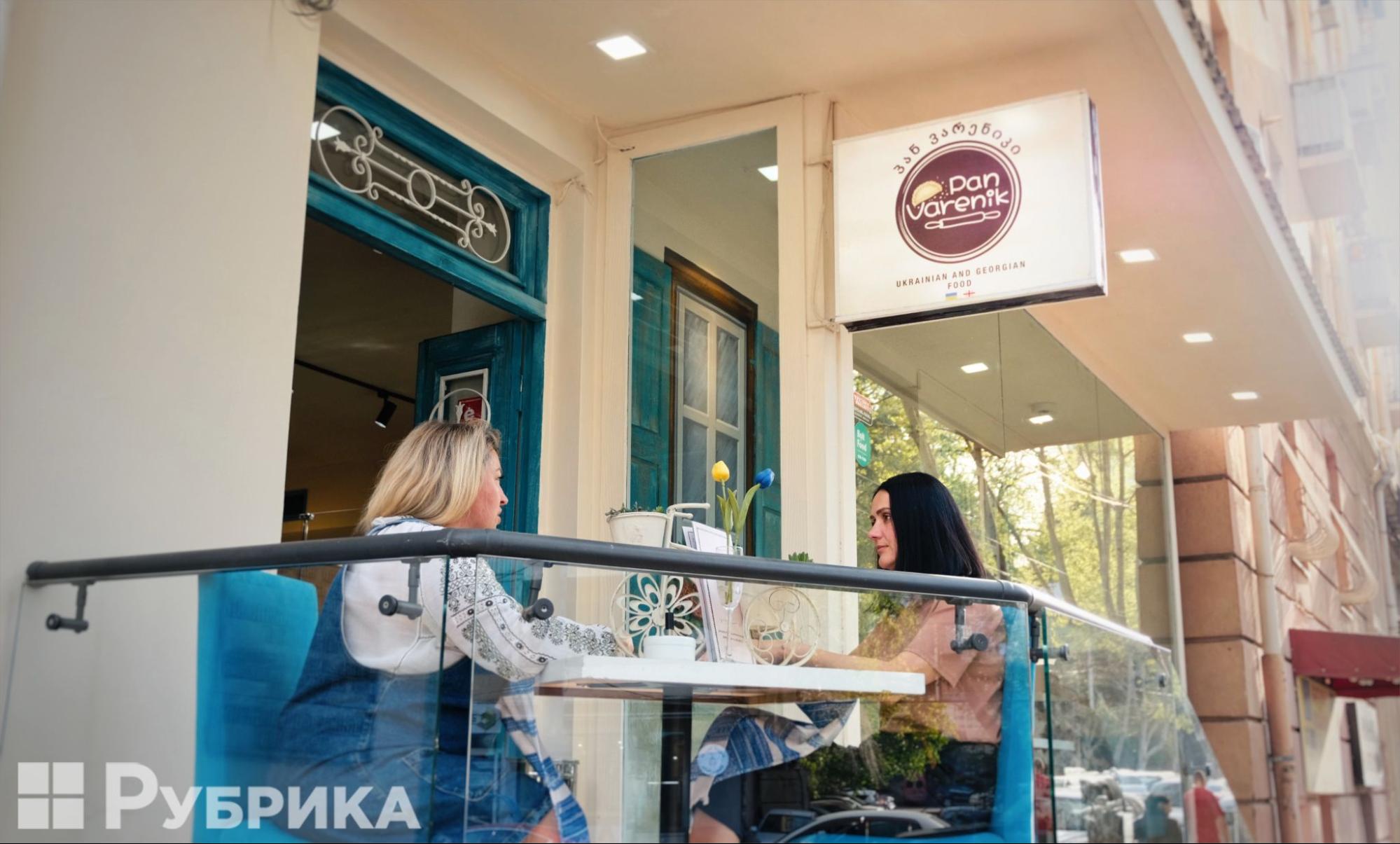
The work at "Pan Varenyk," which translates to "Mr. Dumpling," started with frozen semi-finished products, particularly varenyky, traditional Ukrainian stuffed dumplings. Since then, the business has expanded its team and menu. The restaurant also does catering and has opened another store.
"We're popularizing Ukrainian cuisine not just among Ukrainians but also among Georgians. Initially, Georgians who visited our restaurant didn't want to try anything new. They'd say, 'Just varenyky with cheese, please,' because their cuisine has similar dishes with cheese or meat," Natalia says. "Still, we encouraged them to try other things. Now, they happily eat borscht and order varenyky with different fillings."
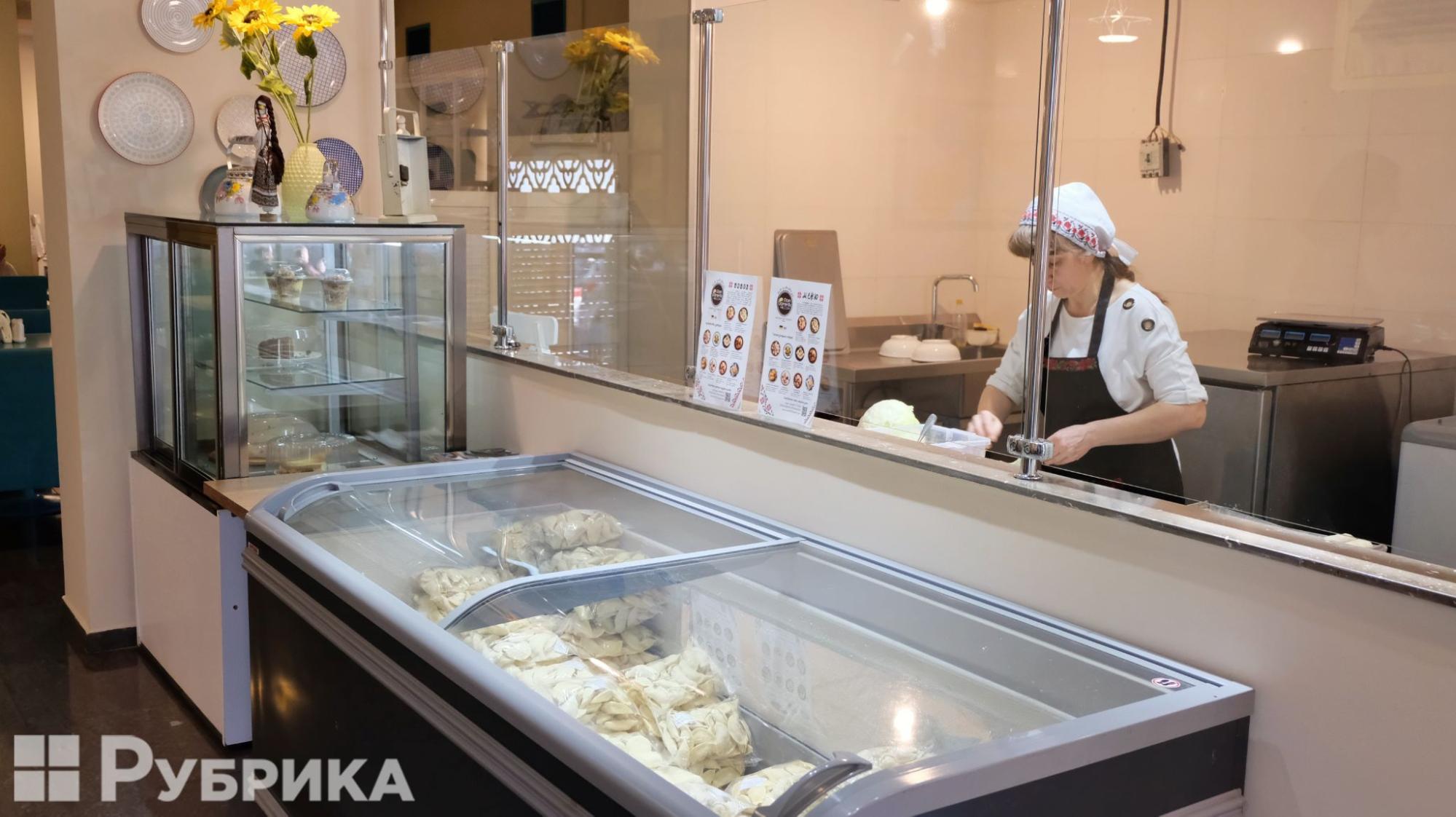
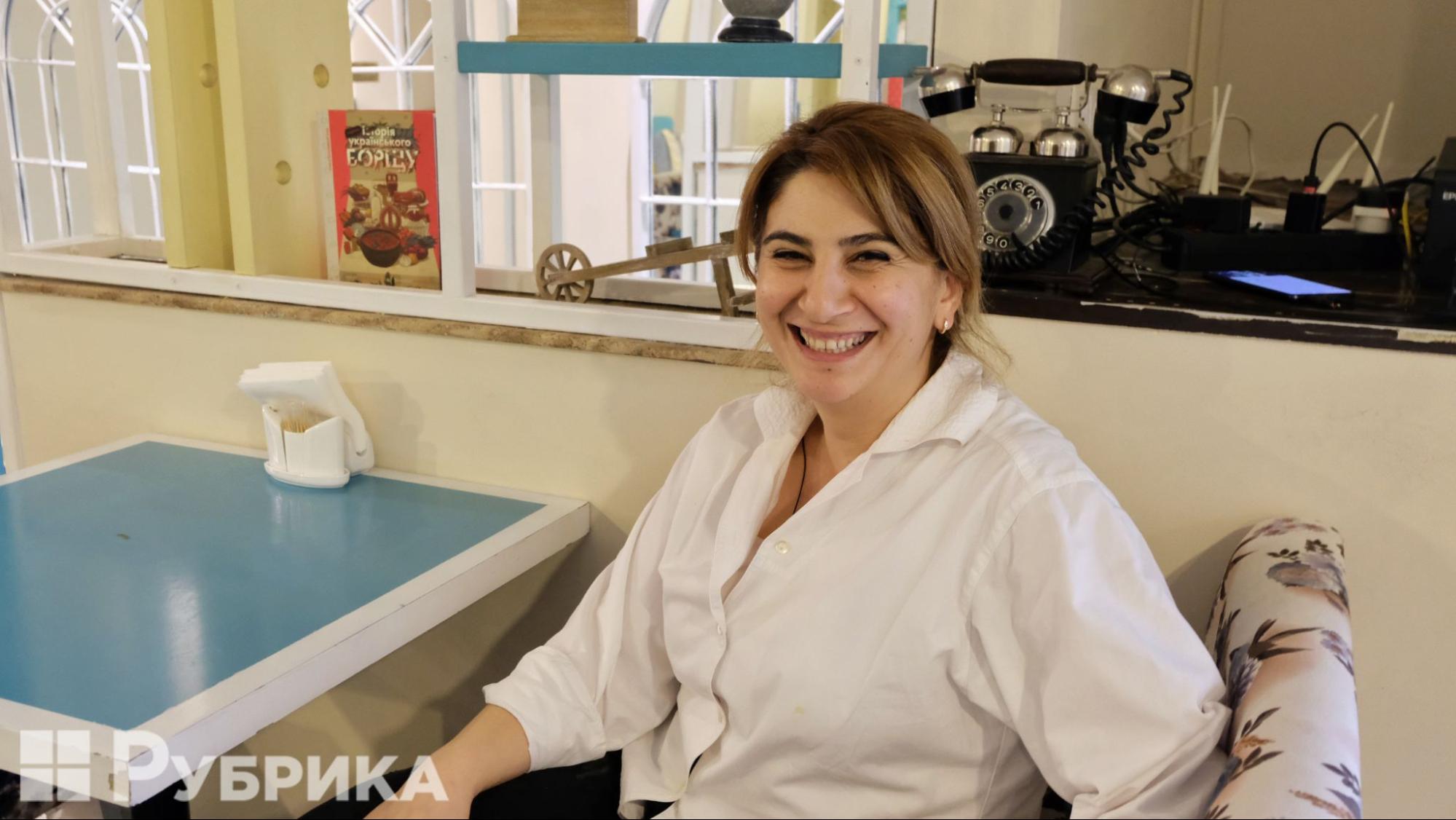
Part of the restaurant's team
The restaurant often collaborates with the Ukrainian House to hold workshops on varenyky making and events to promote Ukrainian culture. Maya, the project manager at the House, recalls how they celebrated Masnytsia, a traditional Eastern European holiday held before the Great Fast. According to all the customs, they took a little wooden doll and "baptized" it. Then, after it "died," they buried it.
About 90% of the event participants were Georgians. Maya says that "Pan Varenyk" is a cultural integration spot with delicious food. "We try to make it not just about food but also a bit more soulful," restaurant owner Natalia adds.
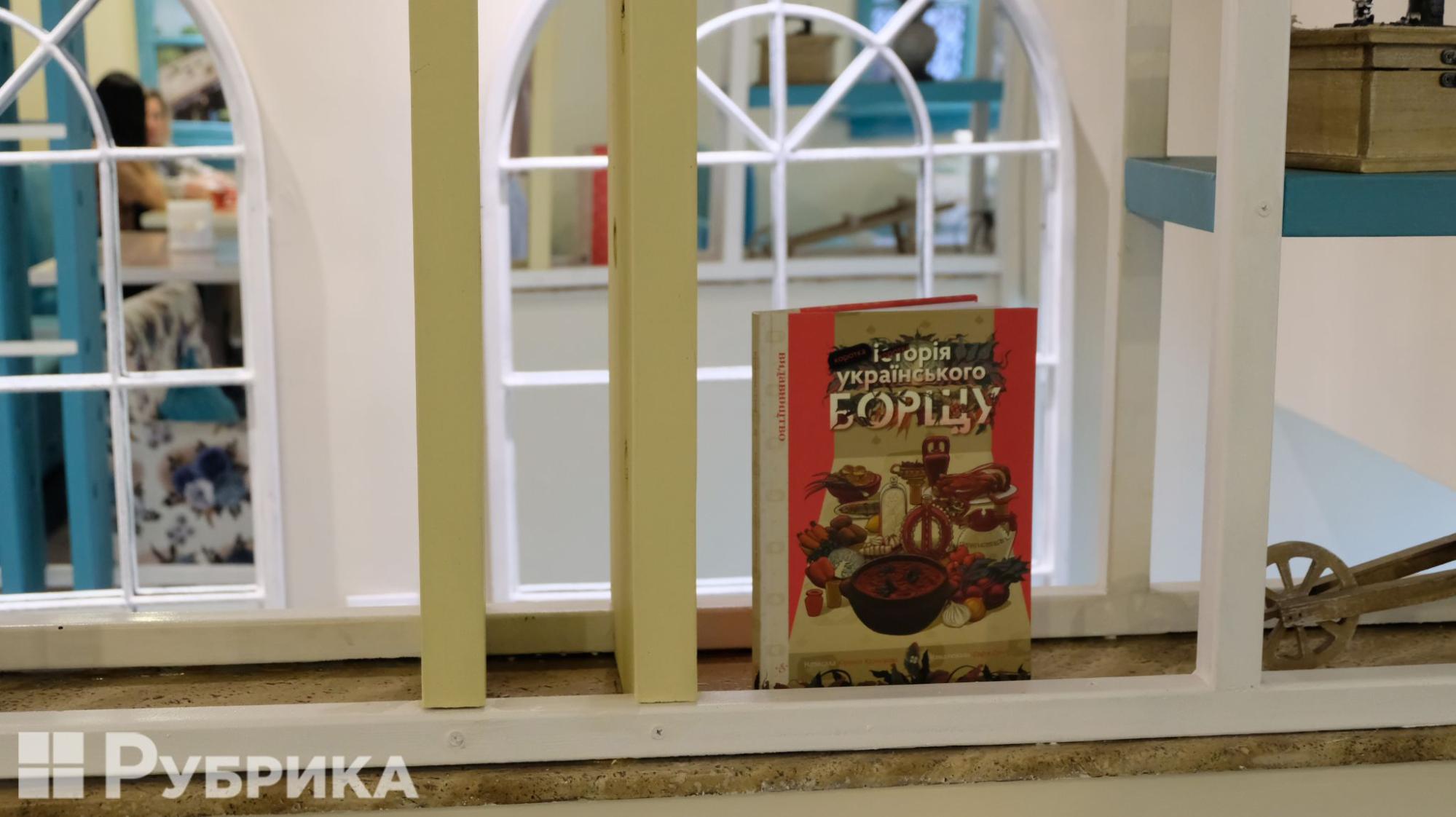
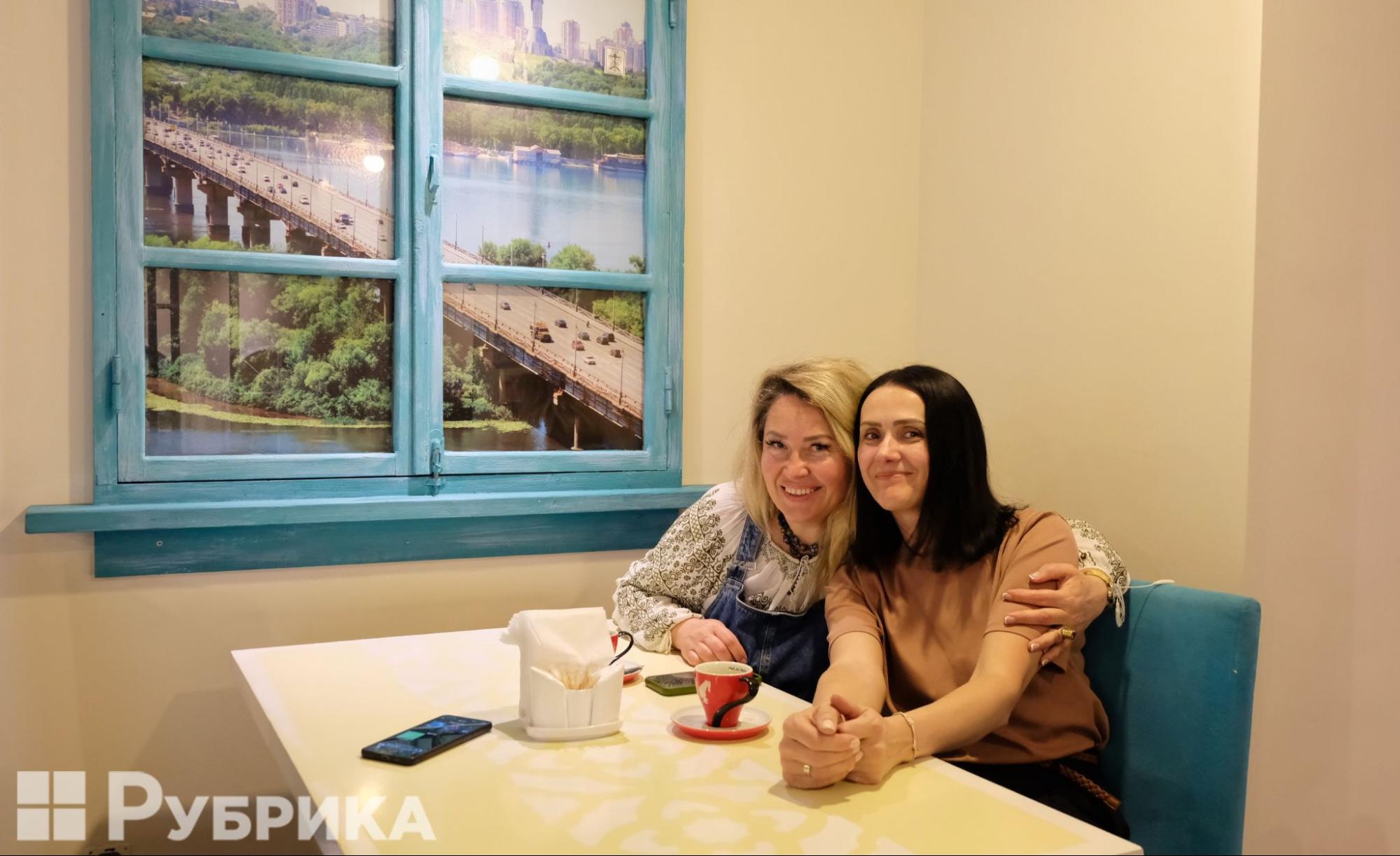
The restaurant has decorative windows with views of Kyiv, the Ukrainian capital
After the opening, the restaurant provided free meals to Ukrainians — almost every business in Tbilisi did the same. For Ukrainians, nearly everything was free: hotels, restaurants, transportation, and activities for children. The landlords gave Natalia the restaurant space for free for three months, and when the time was up, they said, "Pay when you can." Many Georgians also dropped by to support the business, buying things even if they didn't need them.
Natalia says, "Georgians know what war is; they've been through it, and they want to show their support. Georgia is a small country, but they've supported us both financially and morally. I haven't noticed any change in my relationships with Georgians over the past two years — I can't say they've gotten tired of us. I still see a lot of friendliness and warmth."
Newsletter
Digest of the most interesting news: just about the main thing






